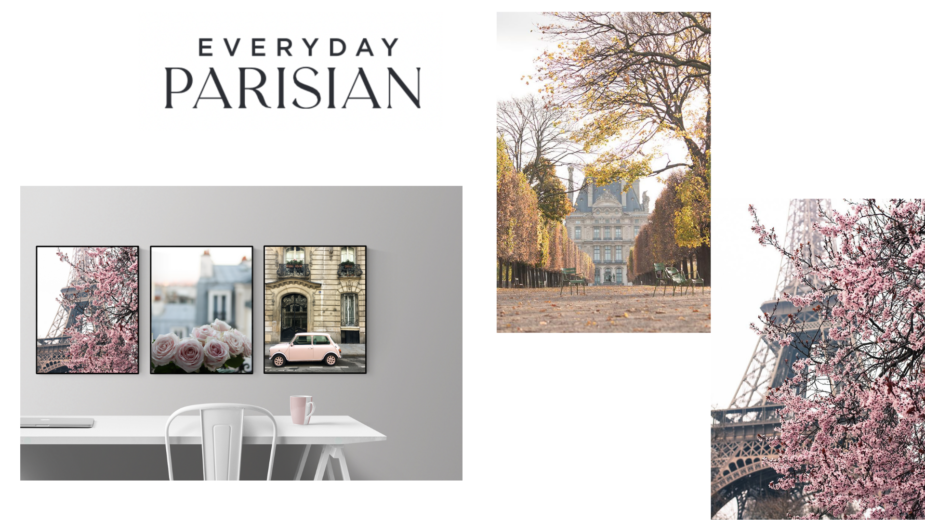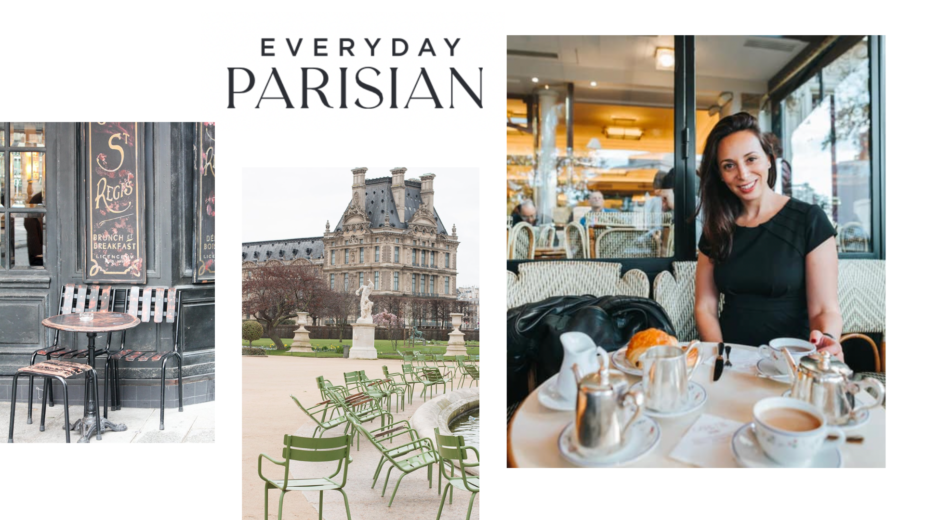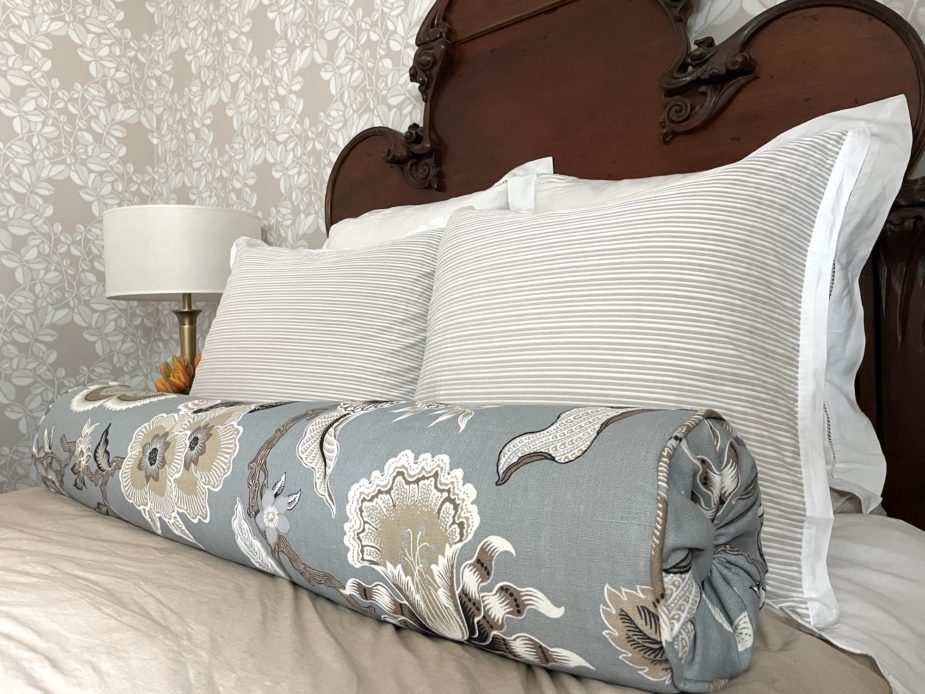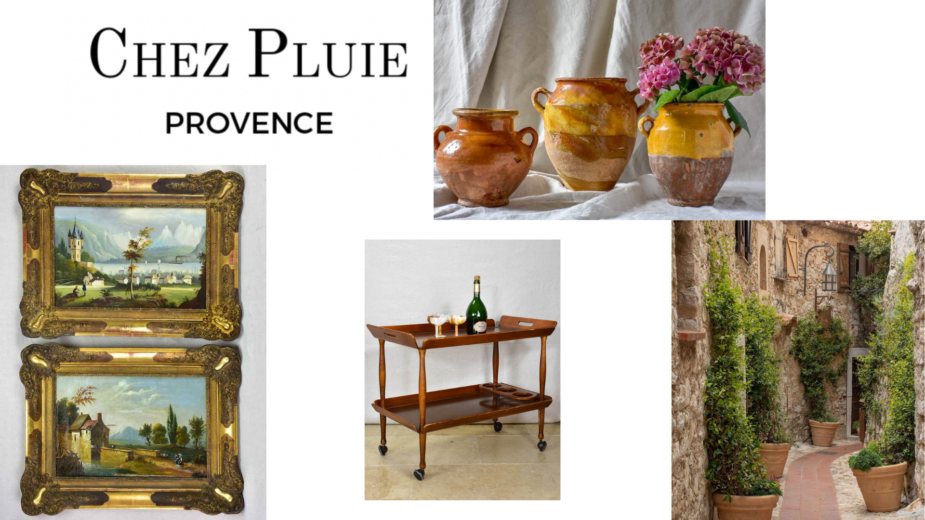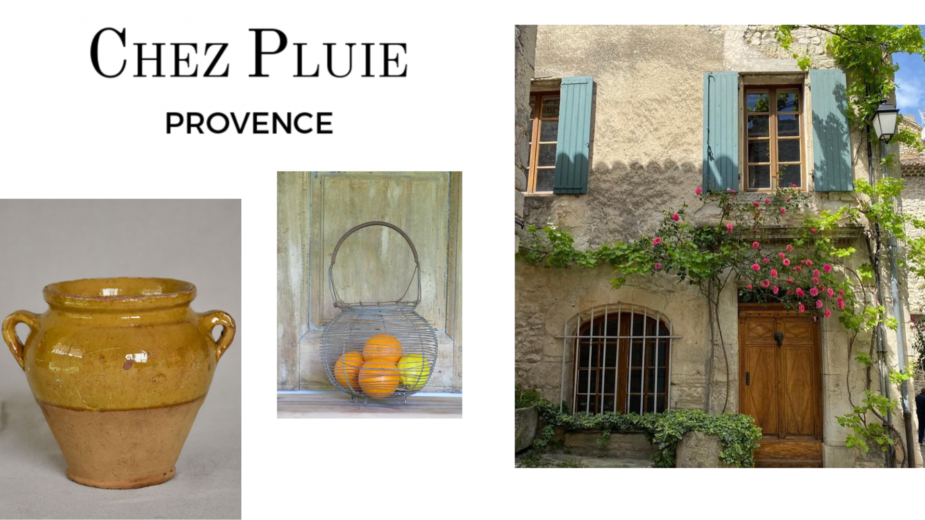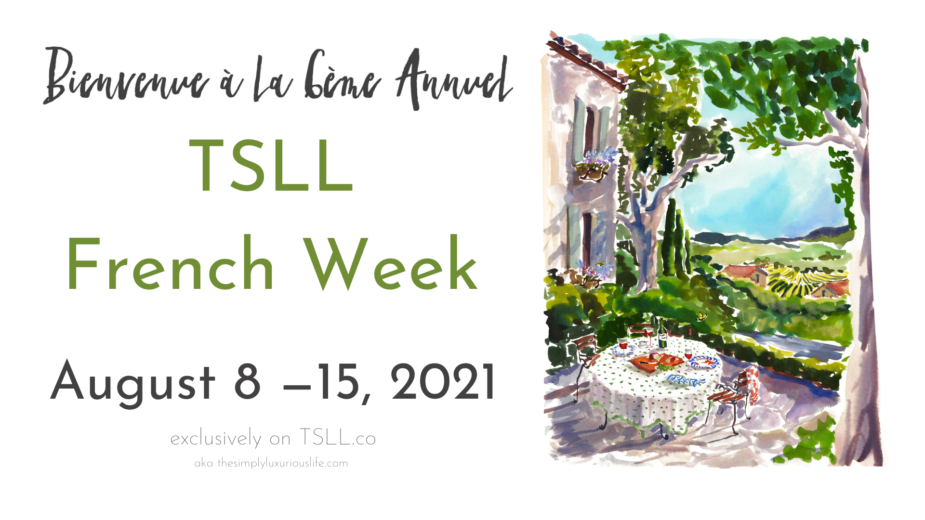Sun, 19 December 2021
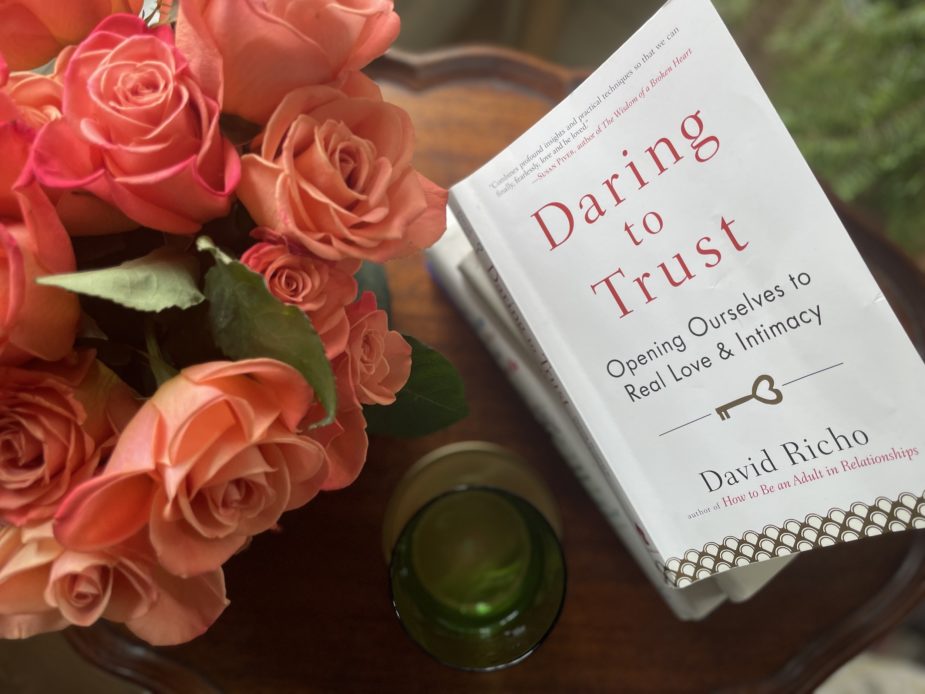 "As we practice unconditional trustworthiness, we notice a healing result: we are no longer devastated when others fail us. Our focus has shifted from ourselves as victims of others' betrayals of fidelity to our own commitment to trustworthiness. We still see that some people are not trustworthy, and we feel sad and injured. But as long as we do not follow suit, we are not so hurt as we once were—and we like ourselves more. This does not mean that we have become naive or gullible. It actually shows that we trust ourselves more. Then we become more discriminating in recognizing trustworthiness in others." —David Richo, author of Daring to Trust: Opening Ourselves to Real Love & Intimacy Often the word trust is expressed as a fundamental desire to find in other people, but what often is forgotten is how we play a role in both being fully trustworthy, but also trusting ourselves. Having self-trust, David Richo shares in his book Daring to Trust is one of the four types of trust we must possess in order to live a deeply enriching and fulfilling life. What are the other three types of trust you may be wondering? We will talk about those in today's post/episode. Over the course of this podcast, I have shared many discoveries from a vast range of books on how to improve the skills that will improve the quality of our lives (see the list of the most recent, the past two years, below). I found it especially poignant and timely that I read Daring to Trust as the year 2021 wound down.
Often we aren't certain or cannot pinpoint what exactly is preventing us from living a life of true contentment. Perhaps we have come quite close, have felt it from time to time, but not consistently. There are moments of deep fulfillment and peace, but it eludes us at other times, and we wonder what we have done wrong. For me, after reading the following books listed above (link to the episode each book inspired), I felt confident I had the ingredients to live a life of everyday contentment, and largely I did, but the said contentment would flit away when certain moments would present themselves, and so I kept searching. I told myself, there must be a missing ingredient I have overlooked. I must have missed a crucial skill for holding myself steadily in contentment each day. Turns out it was understanding what true trust is and how to be fully trustworthy all the while acknowledging that we (and others) are human. Both of these concepts are what will be discussed in today's episode/post. First, let's find common ground on what trust is. David Richo defines it simply as reliance on reliability. He underscores, "[Trust] is not dependency but rather an inner assurance, a confidence that gives us a sense of security." 1. Strengthen your trust IQ: Know when to walk away "We trust others when we feel safe and secure in their presence. Our insistence that we will spend time only with those with whom we feel safe increases our trust IQ. Over time, we become more adept at telling the difference between a con artist and a straight-up guy. When we feel unsafe with someone and still stay with them, we damage our ability to discern trustworthiness in those we will meet in the future." Understanding true trust in others and exercising trustworthiness in how we live our lives gives us the tools to know when to stay and when to leave. Richo's quote above brings to our attention the importance of how we hurt this skill of discernment each time we distrust what we know about trust.
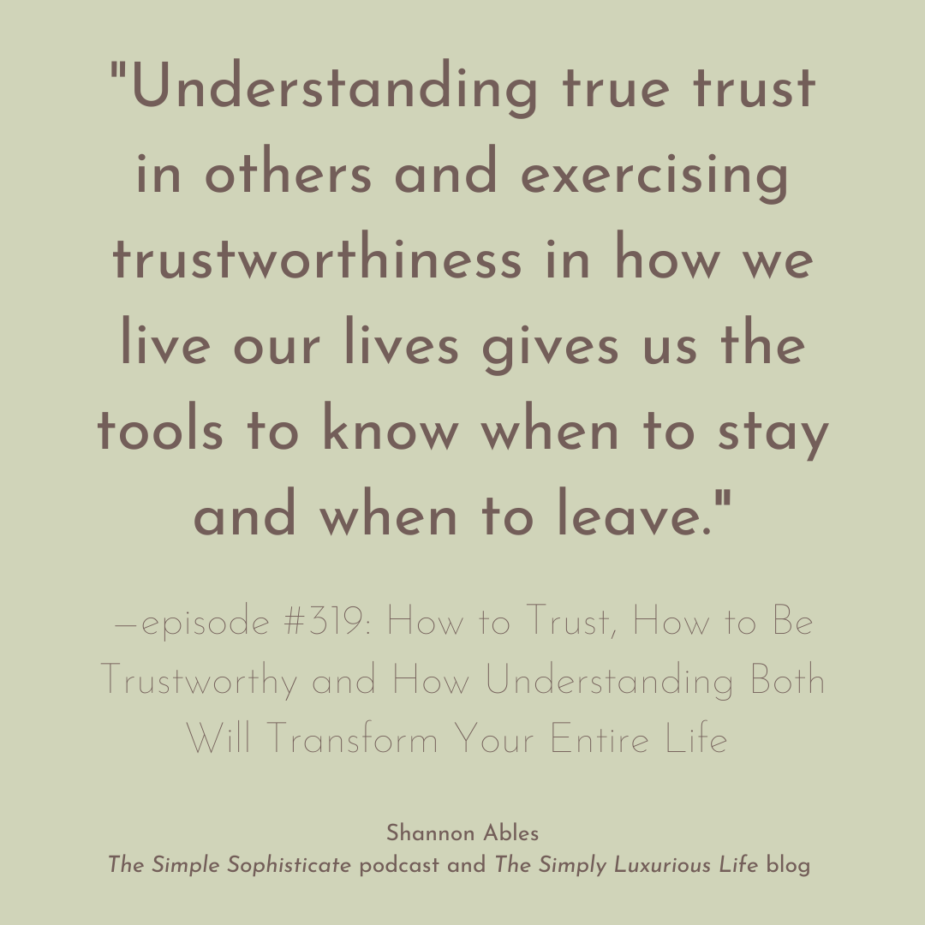 When we know we can trust, "we know longer have to protect ourselves" and the cultivation of true intimacy becomes possible. But first, what is adult trust? In other words, what is the trust we need to understand? 2. What is trust, adult trust? When I read the first chapter of David Richo's book I became immediately aware of how I had approached trust incorrectly throughout my adult life. I had placed the responsibility on the other to show trust or to be trustworthy, placing the power in someone else; however, I had it backwards and I disempowered myself in the process. Let me explain: Adult trust is "I trust myself with whatever you do" instead of "You will never hurt me." Sounds crazy to choose to let go of the latter statement, but again, you are taking back your power, taking responsibility for being trustworthy and being able to accurately determine if someone is available to be trusted. Richo points out that when we make this shift to adult trust, we remove the victim mentality and own our life, our choices and honor ourselves which improves our ability to observe those who are capable of being trusted as we move forward. By putting the trust in ourselves to discern if others are trustworthy, knowing we can walk away at the worst of it, speak up with assertiveness (not aggression) we exhibit security in ourselves. And when we demonstrate we are a secure individual, we attract healthier individuals to us as we are not seen as a burden to someone else, not seen as a victim in need of someone else's care. 3. True trust takes time As much as we desire to flat out trust the person who captures our eye, our libido, our hopes, to say we fully trust someone so quickly is foolhardy. In fact, we must count ourselves fortunate if we grew up in a family home where a healthy installation of trust as Richo calls it was part of our upbringing because we will know what true trust looks and feels like in others as we navigate into our adult lives. However, if such a childhood was not part of our life story, it is important to learn what true trust is so that we will begin to seek out those we can trust and let go of those we cannot. We forget that as a baby, our whole lives were placed in the responsibility and care of adults we didn't get to choose. Over the course of our childhood - 18 years or so - we either have a mountain of evidence that our parents were trustworthy to provide security and care or we don't, but it took time, and our parents were not perfect, so they made mistakes, but most likely, they are people you could trust. The imperfection is important to note, as is the time factor. Trust takes time. No matter how attracted you are to someone, no matter how hotly charged the chemistry that runs between you two, neither have anything to do with whether or not you can trust them. You may want to trust them, but you do not have enough experience with them, time with them or exploration of them to know whether you can or not. What does taking time to trust look like?
"Our companion practice of the unconditional yes to what is directs us to be thankful for trustworthiness from others when it comes our way and be open to disappointment sometimes too." 4. Often sex is desired when it is trust we seek "Regarding touching, it is central to trusting." While there are the five languages of love as Gary Chapman talks about in his book which was the central focus of episode #87 - Romantic Love: What is it and How to Maintain It, touch is often something each of us is starved for. Healthy touch, loving touch, a safe touch. Richo brings to our attention that "in adulthood we may look to sex as a substitute for the touch and holding we need" when what we are actually seeking is a heart connection which can happen in many other ways of touching. However, because we know that other forms of touching prompt great emotional response, we are fearful of the emotion that will arise, so the sex gives us temporarily what we long for, but isn't fulfilling if it isn't with someone we trust. On the trustworthy side, which is something we have entire control over (we'll talk about what that is in the next point), when we trust ourselves (self-trust) we aren't afraid to express our emotions or let ourselves feel the emotions we have while with another, and so we are able to let go of our unnecessary inhibitions and extend touch - whether in an arm around the shoulder, a touch of the hand or a kiss. All of these actions again are exchanged with someone we trust and motivated by sincere exchange of feeling knowing the person with whom we are exchanging feels safe with us. 5. Be wholly trustworthy in your daily actions When we are trustworthy, David Richo explains, we are living with and engaging with the world with integrity and loving kindness.
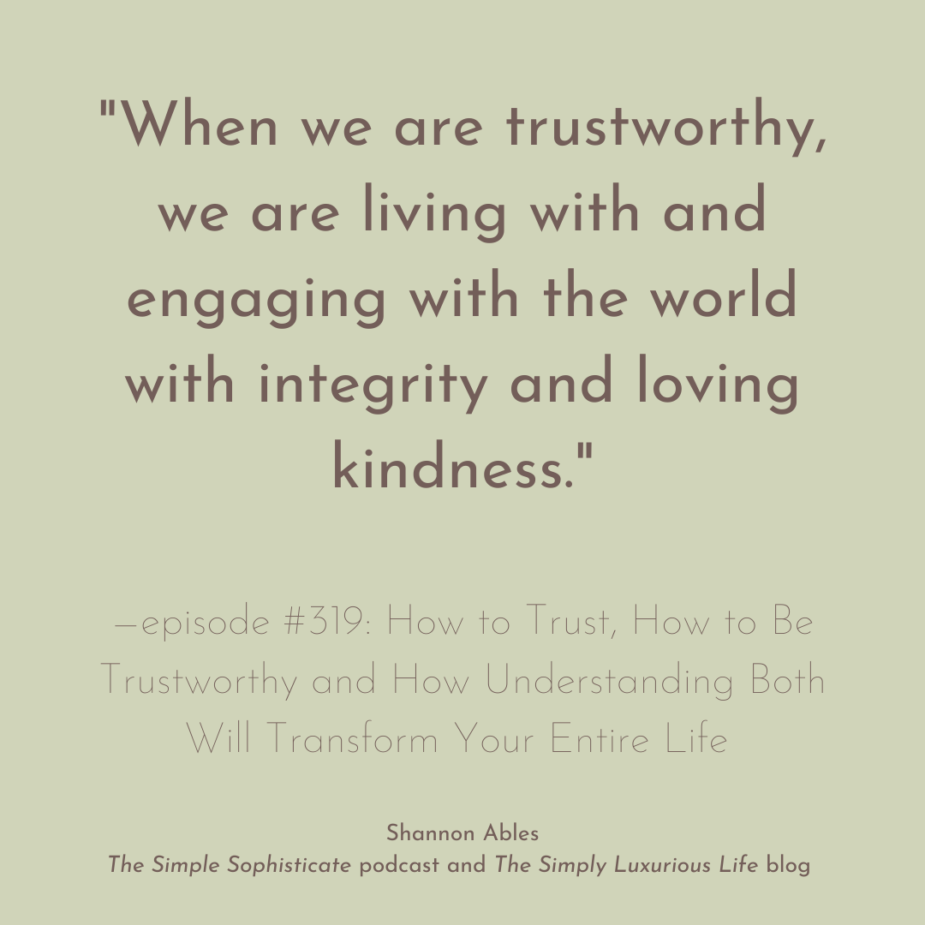 When we act with integrity, we may be rejected, we may even be laughed at, but because we are mature enough to understand how trust can be built with another, the opinions of those who reject or laugh or scoff matter less because we have strengthened our inner resources and know to walk away. We do not take revenge, retaliate or act in a way that is against our integrity, but instead engage with loving kindness. Richo shares this detailed list of the many ways you express loving kindness and integrity. Here is just a taste:
6. Build a full and healthy life: Rely on your partner for only 25% of your needs fulfillment It is not just a romantic partner we shouldn't rely on for more than 25% of our needs fulfillment but any one person. Why? If we remain in the child-parent trust model which is a survival approach, we are in a dependency-relationship which thwarts any attempt for a healthy, fulfilling relationship. Ironically, we are programmed to have our survival needs met - the child-parent model - but we must shift away from this comfort seeking and step into the challenge approach to living which requires that we become more comfortable with the unknown and cultivate more self-trust (we'll talk about this type of trust below). The shift occurs when we start seeking safety and security from within rather than outside of ourselves. When we make this shift, our world changes for the better. Our days and relationships more enriching and our contentment grounding. Richo shares a quote from Henry David Thoreau which I found quite succinct and accurate to describe what we seek in relationships, "I will come to you, my friend, when I no longer need you. Then you will find a palace, not an almshouse." So where does the rest of our need fulfillment come from if only 25% can come from any one person? It comes from the healthy social circle and self-care you have thoughtfully nurtured over time, and that doesn't just mean people. In this post, I share a list of different connections and relationships worth investing in and then in this post share the elements of a strong social well-being. Simply put, your friends, family, yes, even your pets, and of course your career, spiritual practice, Mother Nature and any other resource that strengthens your sense of safety and security make up the remaining 75% of your needs fulfillment. 7. Exercise, as well as be able to identify, the five A's In episode #287 - 5 Things to Do to Build Healthy Relationships, David Richo's first book How to Be An Adult in Relationships: The 5 Keys to Mindful Loving inspired the content. Detailing the five A's necessary to be exercised by both individuals in any mutually satisfying and fulfilling relationships, these 5 A's play a fundamental part in building trust. What are the A's?
We are being trustworthy when we express each of these in relationships. We know someone is worthy of being trusted when they exercise them in return. (read this post to explore each of the A's in more detail). 8. When we have self-trust, there is no need, or desire, to control others "The yes of surrender to the limits in our relationship leads to serenity, the safety and security that happen from within us. Such surrender is our proof to ourselves that we really can trust ourselves. We begin to redirect our trust, an empowering venture." An intimate relationship takes time to build as both involved have taken the time to show they are trustworthy. When we trust the other, we gradually and then more largely surrender, and surrendering is possible because we hold fast and steadily to strong trust of ourselves. The surrendering has as much to do with being with another human being as it has to do with letting our feelings be what they will be in the midst of all the experiences that will arise. And letting ourselves fully feel these feelings without suppression. I speak largely of the awesome feelings that we may have thought were never possible. We are more comfortable with surrender because we trust ourselves to respond rather than react, to speak up with assertiveness not aggression when our needs are not being met as well as knowing what our needs are and why because we have done the homework of ourselves as well as acknowledged that we are still growing and learning and evolving. Richo writes about men in American culture and how often when men deny or step away from the potential of a relationship with a real, healthy and secure individual, stating the reason is because they fear losing their freedom, it is actually an inaccurate reason. Let me explain. If the person they are stepping towards is indeed real, secure and has self-trust, then what men actually fear is not the loss of their freedom, but rather the feelings that may arise when they surrender themselves to what the relationship, what the intimacy, may actually be and who they will become when they surrender to the truth of what they feel. In other words, two self-trusting adults who exchange all of the 5 A's create a space, a life of fulfillment without controlling the other. Why? Because we are not forcing the other to be engaged with us. They want to be with us because we each find comfort, affirmation, love and community with each other. It feels good because it is good to feel our best, and if we feel our best with them, even when we unintentionally make mistakes or life trips us up, so long as we are acting with integrity and loving kindness, the intimacy remains and actually strengthens. Such strength in a relationship takes time to build, just as trust does and that is why true intimacy, true fulfillment, true love, takes time and is never at first sight. 9. Strengthen your core trust and become curious about your own life journey Essentially our core trust is acceptance in the reality of the world. A letting go, a trusting in magic and truth of things beyond our control. It doesn't mean we do not engage or act passively, but we do not strangle life. We let it unfold while dancing with it. When we exercise our core trust we "generate a calm abiding, a serenity that energizes. The opposite of being in control is resting secure and being alert to what comes next." "To open to reality is to turn toward it and to trust that it makes room for us in that very same moment . . . all this happens as we let go of control and stay with whatever happens until it transforms." Understanding what core trust is and how it can open up our lives was an aha moment for me. In many ways over the past 12 years I have been exercising a core trust even though I was doing so unconsciously. When we take our life experiences and mine them for wisdom rather than wallow in them and lament about how things may have been different, we are choosing to embrace our journey and figure out what is our calling, how can we marry what we are passionate about with what the world needs - our dharma as Jay Shetty calls it and in so doing, our journey unfolds in ways we could never have imagined. We are open to possibility and brave enough to explore the unknown while staying grounded in our self-trust - our boundaries maintained, our values held once questioned and evaluated to truly be our own. "When I give up trying to direct the show and instead keep opening to how it unfolds, I unfold." Richo reminds that "without core trust, we can't relax our grasp and let reality unfold as it needs to . . . with core trust, we gain confidence that nothing can happen to us that does not offer a fulfillment of our ineradicable yearning for wholeness. Thus everything in our lives, whether from events or from people, is just what is needed for our unique story to be told." How exciting is that! How freeing is that to know that it is in the letting go, engaging, but not demanding or manipulating, that we actually infuse our life with awesome possibility. 10. As your trust strengthens, your wisdom grows "Wisdom requires us to open to what happens and be discriminating about what we let in." As we come to understand what constitutes trust in someone else, as we explore our own feelings to accurately access what our needs are and why we are feeling what we are feeling, as we communicate with assertiveness paired with courtesy our needs, as we experience the walking away and opening up to new people, as our self-trust grows, as our core trust grows, we are better able to know who to begin letting into our lives and who to walk past. 11. Understand where the need to control originates "Our need to control is actually not a need; it is a panic that our needs will not be met unless we take full charge." Richo's explanation of the truth he states above prompted many lightbulb moments to go off in my own head. I found myself shaking my head in agreement, acknowledging the truth of my own desire to control in a variety of different instances in my life, and I felt grateful to finally have found his insights as they helped me better understand myself. The truth is, when we demand to control, we let go of the core trust we must have in order to live a life of fulfillment. The ego wins when we require something go exactly our way, and when the ego wins, we are relinquishing the belief in our own powers. We are far more capable than we acknowledge in such moments, and letting the ego win keeps us in a state of dependency rather than trust in the world around us and in ourselves. 12. The four directions we give our trust In today's episode so far we have talked about self-trust (#8) and core trust (#9), and now I would like to talk about the other two because once we have all four types of trust being exercised in our lives, the quality of our relationships and our experience of life, thus a life of fulfillment, elevates. When we exercise self-trust we become better able to determine who is trustworthy and who to continue to get to know in a variety of types of relationships. Exercising self-trust in this way ushers in the third type of trust - interpersonal trust.
As we nurture a variety of interpersonal relationships of trust, we make sure not to place more than 25% of our needs in any one relationship. We do so because we trust ourselves, we have a core trust and, to introduce the fourth type of trust, we have trust in a higher power. Do not jump to conclusions. A "higher power" as defined by Richo "can mean belief in a personal God or in any force or spirit in nature or the universe that transcends ego and can be relied upon for grace and support. In many ways, our core trust and trust in a higher power are one. Richo is not saying our destiny has already been pre-ordained or even that there is intervention by something we don't understand. No. What he is saying is that we can have "confidence that no power on earth can hold us captive to hate or prohibit us from loving." This does not require us to have faith in a literal God, but rather to understand something we cannot fully understand but have the courage to believe in the 'friendliness of the universe'. Richo goes on to talk about Grace-full Coincidence in his epilogue, further encouragement to each of us to let go, act with integrity and loving kindness in each of our days, be engaged with the world, but not demanding, and trust in something magical. He poses this question: Does the universe position things so carefully that our hearts can open at just the right time? What mysterious power makes it all come together just like that? Is it that friendly? How can we ever doubt that we can dare to trust? My immediate response and annotation in my book was, I hope so. And so I am consciously daring to trust, to open my heart to that possibility and take control of what I can, which is only myself and how I engage. Remembering to exercise the 5 A's, remove the stories from my mind and walk with patience and self-trust along with all of the other trusts, grateful for the gift of being here on this earth. I dare you to do the same and am confident your life journey will delight and amaze you when you do.
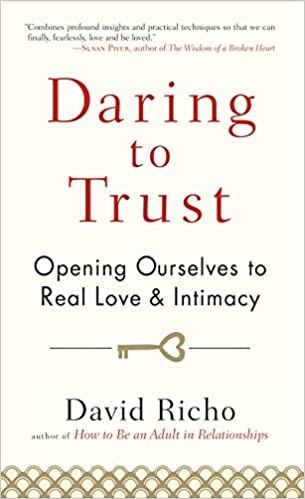 Explore the full book here.
Petit Plaisir —John Coltrane's Giant Steps album
~The Simple Sophisticate, episode #319~Subscribe to The Simple Sophisticate: iTunes | Stitcher | iHeartRadio | YouTube | Spotify | Amazon Music |
Sun, 5 December 2021
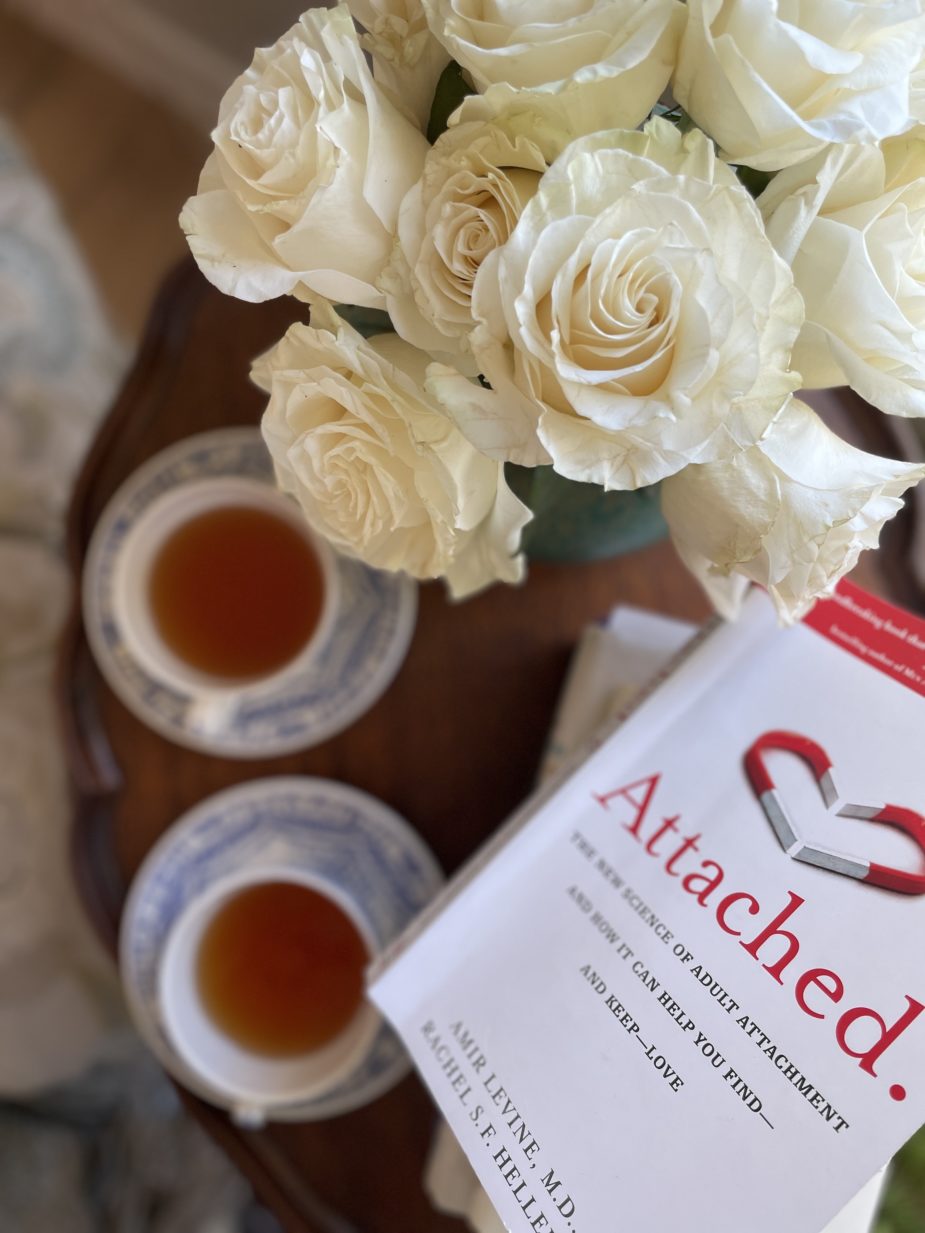 "If we feel secure, the world is at our feet. We can take risks, be creative, and pursue our dreams." —Amir Levine, M.D. and Rachel S.F. Heller, M.A., authors of Attached: The New Science of Adult Attachment and How It Can Help You Find—and Keep—Love Until we know the priceless gift of peace security in relationships of any type bring into our everydays, it can seem unfathomable to trust such peace is possible. On the flip-side, if all that we have ever known due to the good fortunate of our upbringing with secure, loving parents and community is a life and way of being that enables us to try, explore, and soar, then it isn't until we meet someone or try to engage with someone who is insecure that we realize the awesomeness of being secure in a relationship. During the height of the pandemic lockdowns, a book that was published in 2010 hit record sales as those in relationships sought advice on how to strengthen their relationships, those desiring a relationship inquired how to be and find and build a secure relationship and wherever else readers may have fallen on the continuum of wondering about relationships picked up the book Attached.: The new sequence of adult attachment and how it can help you find—and keep—love by Dr. Amir Levin and Rachel S.F. Heller. Without the tools or knowledge to understand what feeling and behaving in a secure way might be, we do our best to navigate the emotions that naturally arise when we take the risk of meeting someone knew and intertwining two different people's lives into one, yet hoping to ensure contentment for both. However, if we don't know ourselves well, don't know how to communicate clearly, yet kindly and without harm, and our partner doesn't either know themselves well or doesn't communicate effectively, how are we know what works for the two individuals involved? The good news for all of us is that having a Secure attachment style can be learned. We are not born with or without it. We are taught or modeled different attachment styles during childhood and then through adulthood; the key is to be aware and knowledgeable of each, and to acquire and practice the skills of being Secure. And as for seeking out a partner, become a secure adult enables to understand what is shown from those we consider entering into a relationship with so that we choose wisely and engage in a healthy manner to put the odds in our favor of finding and keeping a healthy, loving relationship. "Time and again, research shows that the best predictor of happiness in a relationship is a secure attachment style."
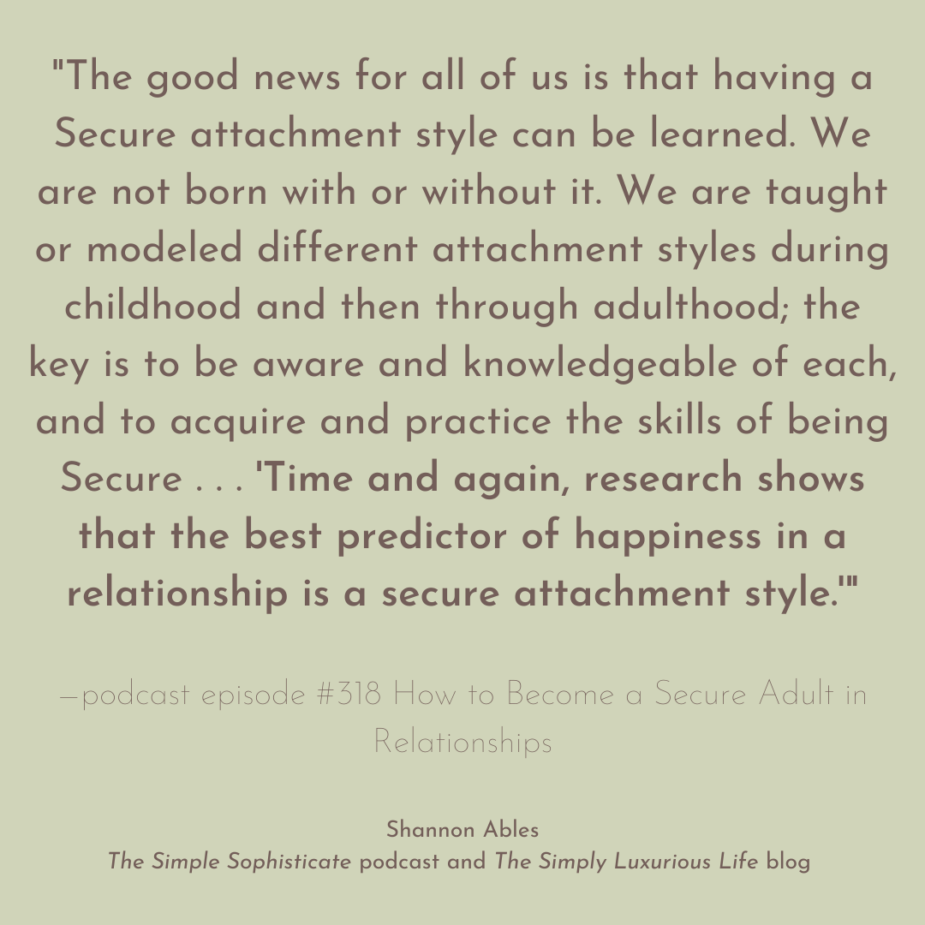 Benefits of being a secure individual in life and in relationships:
What are the characteristics of a secure individual? First, it is important to note that you cannot determine simply by looking at someone that they are secure. Simply because someone is friendly, likable and sociable does not mean they are secure. The author adamantly refutes the belief that a secure individual can be determined by their "charm, composure and/or self-confidence. As with other attachment styles, personality or physical traits won't give secures away. Secure people fit almost every description across the personality spectrum." But back to the question: what are the characteristics of a secure individual? "(1) They are programmed to expect their partners to be loving and responsive and (2) don't worry much about losing their partner's love. (3) They feel extremely comfortable with intimacy and closeness and (4) have an uncanny ability to communicate their needs and (5) respond to their partners' needs." I picked up the book early this fall after reading an article in The New York Times by Foster Kamer. While I had heard of the three, technically four different types of attachment styles, I had never deeply explored them to fully understand them. Of course, being, feeling and engaging with Secure attachment styles sounded to me to be a no-brainer, but I knew I didn't always fall into that category . . . and I wanted to. For the sake of my own well-being, but also for all relationships I was part of, especially an intimate, romantic relationship, I chose to pick up the book and become a student. Guessing how to be Secure didn't seem to me to be a recipe for success, so I chose to be a student, purchased the book, and have since read it three times, re-reading certain sections based on what I needed to more fully understand. Once I read the book I knew I wanted to bring it to listeners of the podcast and readers of TSLL blog, so today, I will be sharing 13 skills and insights for becoming a Secure adult in relationships. By no means is what I share with you today the full breadth and depth of what the book details, so I highly recommend, if this topic interests you, to pick up the book. Let's get started. ~Note to Readers: Be sure to tune in to the audio version as each point listed below is discussed in detail, content that is not included in the written post. 1. Understand the Dependency Paradox"Does [being programmed to connect with someone special] mean that in order to be happy in a relationship we need to be joined with our partner at the hip or give up other aspects of our life such as our careers or friends? Paradoxically, the opposite is true! It turns out that the ability to step into the world on our own often stems from the knowledge that there is someone beside us who we can count on—this is the "dependency paradox". (p. 29) "If you want to take the road to independence and happiness, find the right person to depend on and travel down it with that person. Once you understand this, you've grasped the essence of attachment theory." 2. Understand your current attachment style (it can change, it is not permanent)"Attachment styles are stable but plastic. Knowing your specific attachment profile will help you understand yourself better and guide you in your interactions with others. Ideally this will result in more happiness in your relationships." Know thyself. A common refrain here on TSLL blog and podcast, but the truth is you need to know where you are now in order to acquire the correct instructions to arrive at your desired destination. 3. Learn how to effectively communicate your needs - be clear and kind"[Secure individuals] are able to sensitively and empathetically—and most importantly, coherently—discuss their emotions". Speaking at someone is different than speaking with someone, and how we speak with someone will determine the potential for our needs to be heard. To speak with kindness is to be inoffensive and to "not put your partner on the spot". Use "I feel" statements or "I need" statements to express why you wish to share what you are sharing. The practice of effective communication stretches across all types of relationships and it is never too early or too late to start. Often our goal in communicating is to gain what we desire, but the truth is, we may not immediately gain what we desire, but we will at least become clear about who can or cannot be what we need or give us what we need. Of course, immediate actions from our partner, friend, child or boss doesn't mean they cannot or won't be able to as sometimes it takes time to process, to work on logistics, etc., but if you don't effectively and kindly communicate your needs, no one will know them. "Effective communication is the quickest, most direct way to determine whether your prospective partner will be able to meet your needs." 4. Don't play games5. Refrain from engaging in the 'relationship dance'Defined as 'one partner getting closer while the other steps back in order to maintain a certain distance in the relationship at all times', with a secure partner you don't step too closely too quickly, simply at a steady and reasonable pace that the two people involved feel comfortable moving. There is no rushing as there is a groundedness in one's self and a secure person is "comfortable with closeness" and isn't afraid to step forward once they know themselves and who they are stepping toward or someone they want to get to know better. This is not to say a secure person knows it will work out, but rather they have a sense of steady assurance in themselves and that what they give is real and worth exploring. ~Post to explore: 10 Ways to Strengthen Your Self-Worth 6. View "sex and emotional intimacy as one"Distance is created when the two are separated. Again, such a view speaks to the ability to be comfortable with closeness once both partners have been vulnerable beyond the bedroom as they get to know each other and are drawn to each other beyond the physical chemistry. 7. Responsive and expect it in return (remember, no games)Having communicated their needs and listening sincerely to their partner's needs, the reciprocity of responsiveness rather than dismissal strengthens the trust and intimate connection. 8. Be availablePhysically and emotionally being present for your partner is the action of a secure individual. When we communicate our needs and tend to them as well as observe our partner is responsive to our needs, we in turn are also showing up and making ourselves available. 9. Support without interference"Provide behind-the-scenes-support for [your partner's] endeavors." Allowing your partner to pursue what they are passionate about, helping without over-taking or taking the credit so that their gifts shine is the support of a secure individual. As a secure individual you are helping because you want to support your partner, yet are securely tending to your own passions and need no spotlight, need not be in control, rather only present to help as needed without being recognized by anyone other than your partner. 10. Understand there are many potential partners11. Don't feel a need to act defensively or punishIn other words, secure individuals can see a situation more objectively. They can effectively diffuse the conflict, observe in their partner what really provoked their outburst or anger, and not add fuel to the fire. 12. More likely to step into a healthy relationshipWe must keep in mind that a secure individual tends to be savvy in their partner selection. It doesn't mean if you are secure, you will always select a secure partner, but through clear and effective communication as the getting to know you phase unfolds, you can observe red flags early-on and find the right partner more easily. I didn't say quickly, but being secure does help you not step forward too far with someone who would not be the right person. 13. Expects to be treated with respect, dignity and loveDovetailing with #12, a secure person begins any relationship with effectively communicating their needs which is why knowing yourself highly benefits the ability to choose a partner to begin to get to know. The fundamental foundation piece for a healthy relationship is believing, yes, knowing, you are worthy of respect because you extend it in your everyday life. When you present yourself to a potential partner holding yourself in a space of self-respect, knowing you deserve to be treated with dignity and love, then you can quickly discern to whom to begin engaging with and whom to walk away from. Of course, even as this book points out, research findings change with hindsight, time and more examination, and it is never wise to take an entire book at face-value but rather to read with a critical mind and discerning objectivity. However, what I am confident you will find is that no matter what your relationship status when you apply the tools and skills explored and taught in this book, you will find a deeper peace and inner calm that you may not have had prior to including them in your life. After all, at the core of the definition of contentment is to find a peace within no matter what is swirling about outside of you. How we choose to engage, what we step forward toward and refrain from engaging in determines the quality of our lives, and if we apply the knowledge we have about ourselves and what we desire to cultivate in our everydays which absolutely, relationships play a significant role, we begin to realize the amazing gift we give ourselves when we become a secure adult.
Petit Plaisir —Winter Flower Bouquet with Ornamental Cabbages Click on the link above to learn more about how to arrange your own bouquet - so simple and quite inexpensive (under $20).
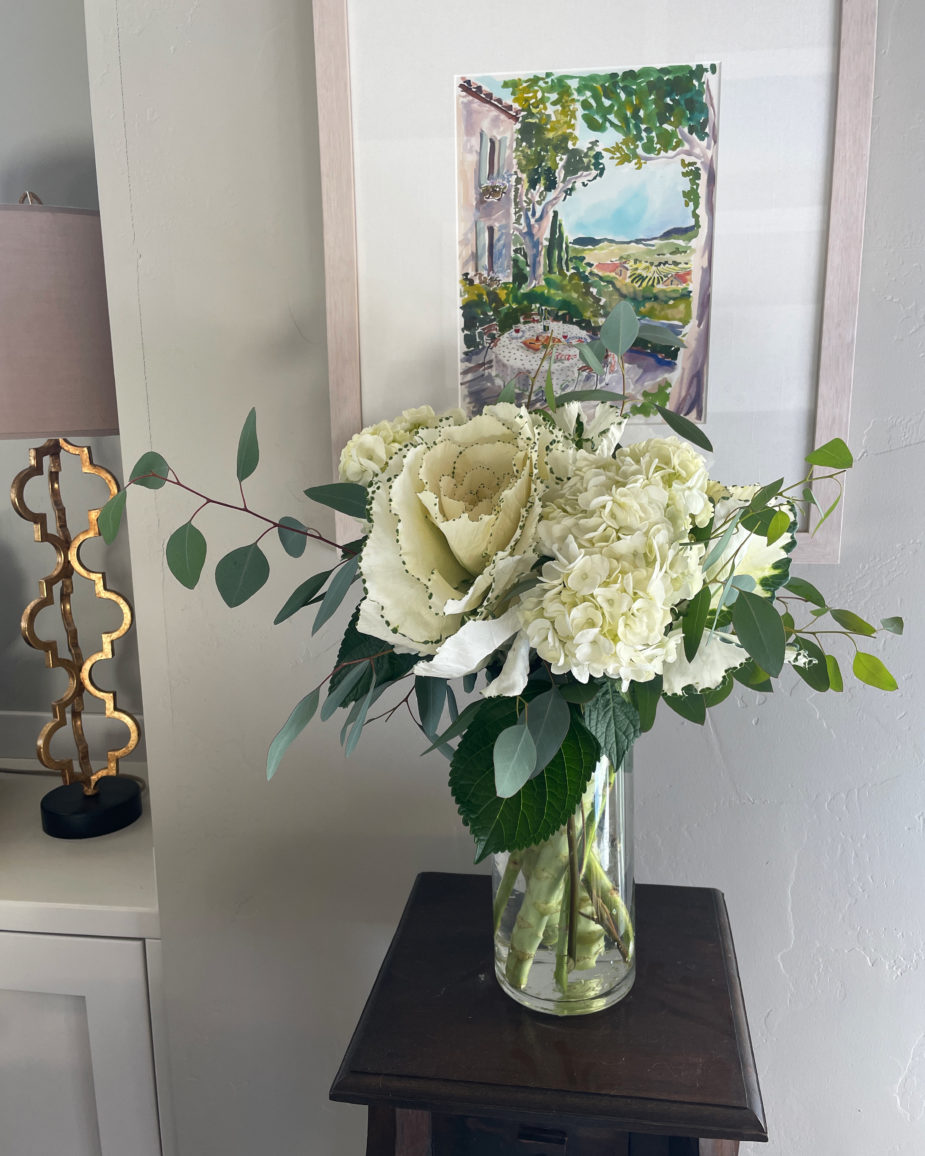
SIMILAR POSTS YOU MIGHT ENJOY
 5 Things to Do to Build Healthy Relationships, episode #287
~The Simple Sophisticate, episode #318~Subscribe to The Simple Sophisticate: iTunes | Stitcher | iHeartRadio | YouTube | Spotify | Amazon Music |
Sun, 21 November 2021
 The busy holiday travel season is upon us. After two years in which many people have not been able to gather with loved ones, the liklihood that even more people than usual will be hopping on the road, the plane or the train this time of year is to be expected. Even with unforeseen hiccups along the way, arriving at the doorstep of a loved one will often erase any stress caused and make for a story to chuckle about over a glass of mulled wine or while sipping brandy after a long anticipated delicious meal with hearty, heated, yet playful exchange. Having just shared one idea for handling well travel headaches (finding the hilarity in it all and sharing a moment with a loved one to savor), I'd like to share a few more to help assuage the stress and enable you to move past them quickly so you may enjoy your visit, stay, and the experience you have been eager to partake in after having planned, saved and waited. Each of the examples have been experienced first-hand. I feel fortunate to not have experienced others that are far worse, so can only speak to my own travels (thus far and fingers crossed for continued good fortune). With that said, let's take a look! 1.The accommodation's description was less than accurate in a disappointing way Just this past August, a vacation rental on the coast boasted their lovely accommodations (a place we had never stayed before); however, they neglected to share important information that would have steered me away as I was traveling with my two boys (lots of stairs and very little grassy areas for quick potty breaks). However, while only planning to stay one night, I did what I could to make it easier for my pups, and had I planned on staying more than one night, I would have found a different rental or changed my travel plans because enduring accommodations that make everyone uncomfortable is not something to spend money on. Waking early in the morning, be scooted down the coast for a beautiful early morning walk on a new-to-us beach. Had the accommodations been lovely, we may have lingered longer, but I looked for the "lemonade" in the situation and found a lovely outdoor excursion that I had not planned on. As well, I chose not to write a review as I find it unhelpful to leave negative feedback when my expectations may not be someone else's. I have in the past directly emailed the owner of rentals to provide feedback that may benefit future travelers, but preferring to only share positive reviews online while sharing specifics as to why I enjoyed my stay. This approach is a way to extend gratitude and also leaves me with peace of mind. Sometimes we travel with high expectations, and venting in the form of a negative review isn't as therapeutic as we may initially think it will be. The next time the accommodations you have arranged are not what you had hoped, don't be afraid to change your plans. The spontaneity may usher in an unexpected wonderfully memorable moment or experience. 2. You cannot find your vacation rental (or think you cannot) During the summer of 2018, I had finished a week of cooking with Patricia Wells and was now in my rental car (picked up in Avignon) to the Luberon area of Provence - the Golden Triangle as it is often called. Searching for a hamlet off one of the many less traveled roads that wind through vineyards, I had turned around and retraced the notes received from the owners multiple times. Having driven through Gourdes (gorgeous!) which I later learned was too far southwest, and then finally arriving at the home, I scratched my head: A very nondescript property with no similar vignettes as shown in the online posting and nobody to be seen. I had to be at the wrong house. I asked one of the neighbors who was out in their yard if they knew the owner (whose name I had from our correspondence). It turned out they were also a traveler, traveling with their family from Australia enjoying their yearly stay in the region. Unable to determine if indeed I was in the right place, I emailed the owners. It turned out I was at the correct location, and they were on their way to open the doors. Their home was hidden behind large barn doors that upon opening revealed a gorgeous Provence three-story refurbished house (view the tour here). While I waited to hear from them, I stayed put, stepped out of my car and began walking around the hamlet, capturing pictures of sunflowers, and the sublime Provençal blue sky. Turns out I could trust my directions and my sense of direction. Sometimes we become a bit more flustered and doubt our ability to read directions properly when we are in a new place, a new country and communicating with someone new. The best advice I have found is to yes, double-check and triple-check the directions by rereading them slowly. If you have someone else with you, have them read the directions as well. Follow the directions as best as you can and when you arrive, if nobody is about yet to let you in (should that be part of the accommodations), let yourself wander about and get to know the area. Chat with neighbors to ask for help or to ensure you are in the right spot. And absolutely reach out to the owner to alert them to your arrival.
 A Villa in the Golden Triangle of Provence: Villa Dæsch (tour the entire property here) 3. Lost luggage With more reliable tracking than ever before, most often if our luggage doesn't arrive when we do, it isn't lost. It simply hasn't arrived yet. The bags may have been put on a different plane leaving for the same city that hasn't landed at the airport. However, as your bags are not on the conveyer belt, be sure to check in with the information desk in the luggage area to let them check where your luggage actually is and where and approximately when you can pick it up. Upon arriving in France in 2018, one of my pieces of luggage was not on the same plane as I had been (one was and I saw and collected it per usual). I checked in with the luggage information desk, they scanned the bar code I had received when I checked my luggage, and they were able to tell me at which station to pick it up and when it should be available. They were right and within 30 minutes to an hour, I was reunited with my bag. 4. Miscommunication When traveling to a country where English is not the primary language spoken, making reservations can be difficult if not done online. When I chose a small boutique hotel for my accommodations in Paris a couple of years ago, the manager's English was about as strong as my French, actually his English was far better than my French but not by much. While I did successfully make my accommodations, the taxi pick-up at the airport didn't happen for some reason, and completing payment was delayed for three weeks (I began my trip in Paris at the same location I ended it three weeks later). However, all of this may sound avoidable or absurd to us Americans who expect everything to happen swiftly, but the manager of the hotel particulier was not worried in the least, especially about the latter snafu. "We'll finish payment when you return. Do not worry!" Often we bring our culture conditioning into situations - what causes us stress, our expectations while visiting - when what we need to do is take a breath, knowing we have what we need in order arrive, stay and enjoy, and then let go. Communicate as much as needed to confirm, say what you desire to know repeatedly, but then take a breath and enjoy your stay. What eventually helped me to relax was my knowing the credibility of the accommodation, so after a quick phone call with the manager after my first stay, I chose to relax and yep, indeed all was tended to and paid for when I returned. When we've done the necessary homework ahead of time, often the best thing to do is the reason we take vacations in the first place - relax.
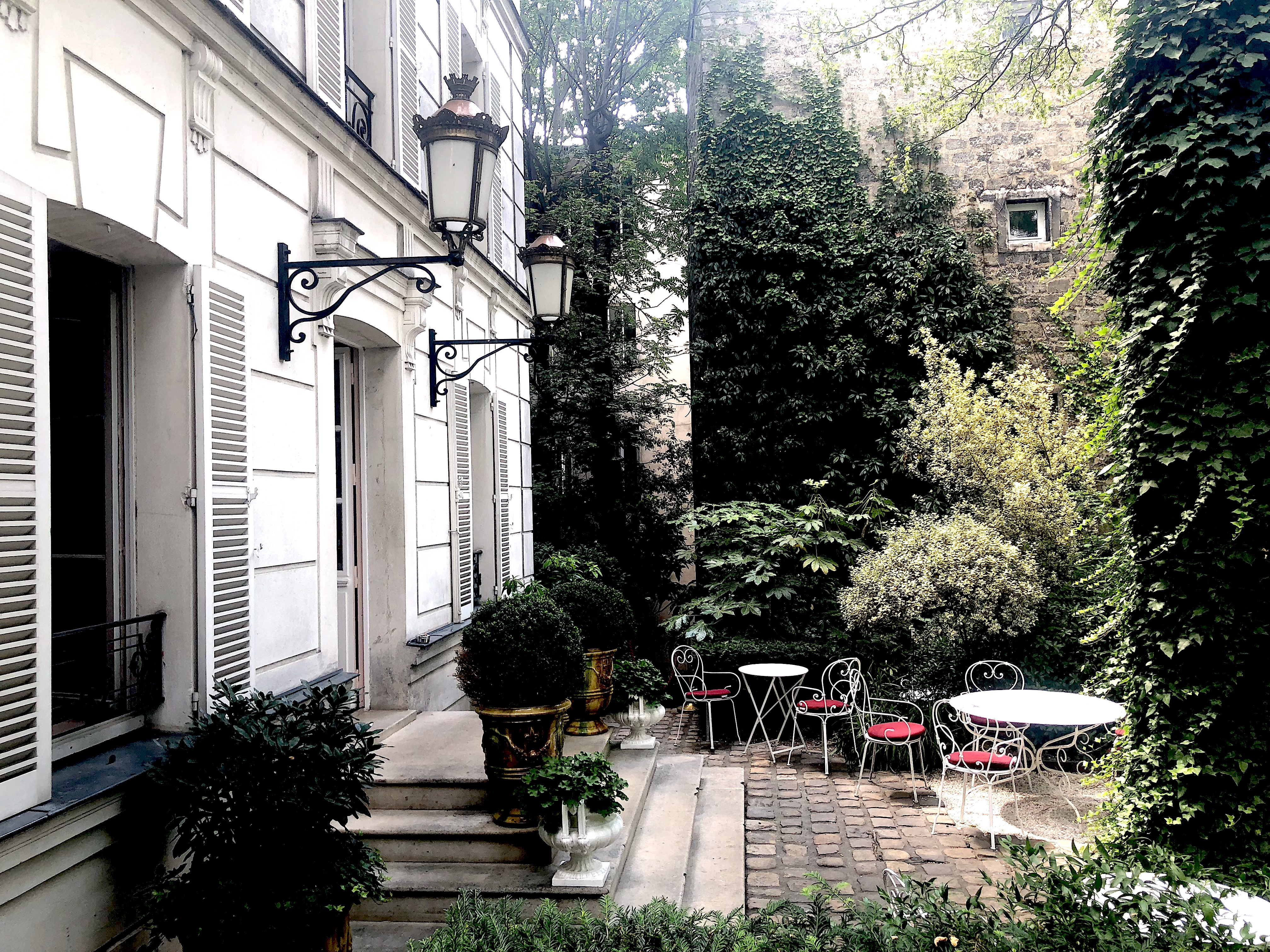 Hôtel Particulier Montmartre, take a tour here. 5. You don't get what you don't ask for I have quickly realized, especially in larger cities, if you don't confirm what floor, what type of view, etc. you want, you likely will not get the one you imagined. Case in point, for a one-night stay in London before my flight back home to the states in November 2017, I stayed at the Portobello Boutique Hotel in Notting Hill (see the street on which the hotel is located below in my IG post). A beautiful hotel and wonderfully located, my room was in the basement. The room itself lovely, but as someone who doesn't like basements as a general rule, I was surprised. Well, at least the price was nicer than a room on a higher floor, but still, it is always important to share your preferences. Even if they cannot accommodate them or only a few of them, at least you did your best to tailor your experience.
6. You forget to pack your necessary toiletries Last New Years the boys and I headed to the coast to ring in the new year. I packed all of my necessities neatly in their containers, totes and bags, and set out for the four hour drive. Upon arrival at my accommodations, I unpacked my entire suitcase and situated everything as to make the home-away-from-home just that, as much of a home as possible. Well, I couldn't find my toiletries bag, and I remembered vividly packing it . . . ahhh . . . I packed it, but I then left it on my bedroom chair where it was neatly sitting when I arrived back home after our two days and nights away. What to do? Not wanting to incur too much expense but still needing necessary items such as moisturizer for my skin, floss for my teeth and contact solution, I made a quick trip to the local grocery store. I didn't purchase anything terribly expensive, but I did purchase items I would use again should this mistake occur. Those items now are left in my main piece of luggage and NEVER leave it as my toiletries bag that I usually prefer to bring requires I add a handful of items I use at home on a daily basis (I do have travel sizes of most items that never leave my luggage, but again, the toiletry bag was removed to stock it and never made it back to the main luggage piece). I will acknowledge with great thanksgiving, if these are the worst of travels gone awry, all is going quite well. The truth is, very often most of our travel plans go very well, even unexpectedly amazing. To remember to celebrate when such is the case is a practice in gratitude and holding ourselves in the present to witness and savor fully. Travel of any kind requires us to be malleable, to stretch, to bend, and not to break and throw in the towel when all does not go precisely as we had hoped. Perhaps yet another lesson presents itself: set aside expectations and instead while plans may be in place, bring your preparation without rigid and narrow expectations of what must happen. Let it all unfold as it will and engage with your whole, true self so that you can drink up the beautiful surprises, connections and memories created along the way.
Petit Plaisir —Bingley Brass Candlesticks (with and without handle), Rowen & Wren Through Wednesday November 24th, use promo code GIFTSAPLENTY to save 12% off your order.
  View all TSLL Petit Plaisirs here. ~The Simple Sophisticate, episode #317~Subscribe to The Simple Sophisticate: iTunes | Stitcher | iHeartRadio | YouTube | Spotify | Amazon Music |
Sun, 14 November 2021
"Vitality involves intersection with and participation in the world around you. It is not predicated on taking a year off to find yourself. It doesn't require making a drastic change. You don't need to lose yourself in self-reflection. You don't need to overhaul your existence, or reinvent your life, or wait until the chaos [subsides]." —Dr. Samantha Boardman, author of Everyday Vitality What is Vitality?Vitality elevates the quality of each day, and it is something you cultivate with your actions, engagements and approach to living. "Health of spirit" is an oft definition of vitality, a "sense of feeling psychologically and physically up to the task". Most directly, "Vitality—the positive feeling of aliveness and energy that lies at the core of well-being."
It is important to note what writer and psychologist Andrew Solomon shares. "The opposite of depression is not happiness, but vitality." Picking up Dr. Samantha Boardman's book Everyday Vitality: Turning Stress into Strength initially gave me pause. First of all, based on previous readings and research and my own experience, we shouldn't be managing stress, we should be assessing and eliminating it at the source when and where possible. So it was her subtitle that almost had me backing away from reading the book. However, as soon as I read the introduction it was clear, much of the stress that is in our lives is self-made and thus can be reduced and/or eliminated. Her book is full of specific approaches, backed by research and multiple studies to demonstrate the significant shift and beneficial shift our lives make when we approach our everydays - how we interact, that indeed we do interact with the outside world and how we hold ourselves as we navigate through our days - thoughtfully and intentionally. In other words, actively engaging rather than passively observing. Today I have ten approaches, tips and tools for improving the vitality in your everydays. There are far more than ten to be found in her book, so hopefully today's episode will be a nice taste of what you may want to explore more if you pick up her book. Visit the show notes - https://thesimplyluxuriouslife.com/podcast316 |
Sun, 31 October 2021
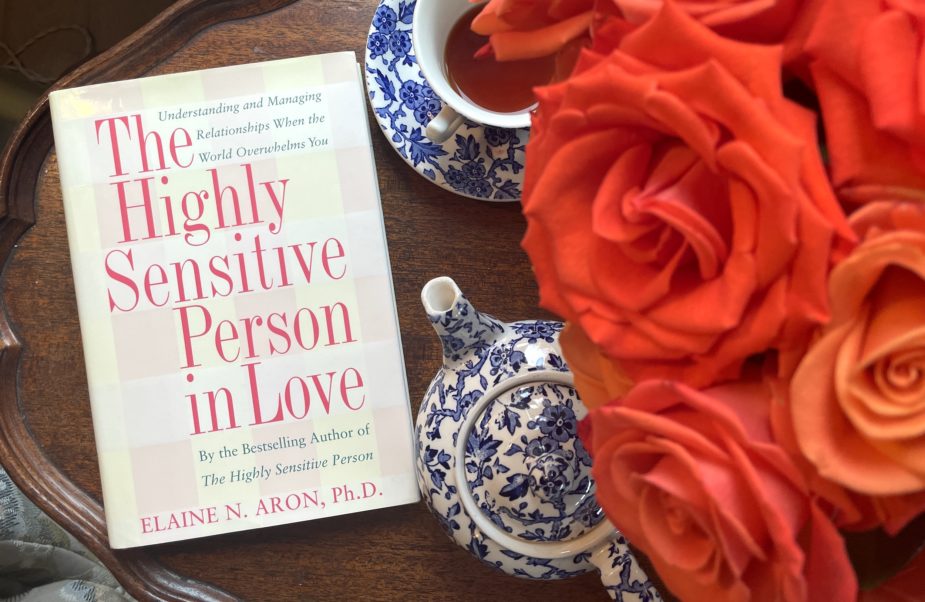 "We fall in love harder and fear it more because we are drawn to the depth and complexity of the emotions we are going to unleash, but we also know that the consequences of such deep love are unforeseeable, a situation we never relish."—Elaine Aron, author of The Highly Sensitive Person in Love: Understanding and Managing Relationships When the World Overwhelms You Being in a loving relationship, of the romantic persuasion, can seem evanescent or near impossible for HSPs (a Highly Sensitive Person). In episode #44 of this podcast (one of the most downloaded episodes of the show), I detail the many gifts of being an HSP (of which I self-identify). Sharing 26 awesome benefits of identifying as HSP after reading Dr. Elaine Aron's first book The Highly Sensitive Person: How to Thrive When the World Overwhelms You ushered in a breath of not only fresh air, but relief as I felt that finally I understood what for my entire life existed, but I could not understand or explain, let alone receive understanding from others who just didn't 'get me'. Enter into the world of trying to be one part of a healthy, loving, respectful, equally fulfilling romantic relationship, and my confusion did not dissipate however because even though I tried my best to communicate what I now better understood about myself, I was missing a better understanding of how to first meet people more likely to mesh well with me. I was looking in the wrong places, misreading the indicators of my own feelings I had relied on my default in my pre-HSP-aware years. Introduced to Elaine Aron's second book The Highly Sensitive Person in Love, I found a valuable resource that translated the once foreign language of my own self and feelings and also gave me tools to successfully and more confidently move forward. In today's episode I am going to share 10 aha moments I found while reading the book, but there are FAR more than 10. Consider this a taste of what you will find in the book which is now a highly annotated book in my library and one I am thankful to be able to return to as my life journey unfolds. 1.Your partner does not need to be HSP as well (but it helps if they fall somewhere in the middle of the spectrum of sensitivity) With 15-20 percent of humans "born with a nervous system genetically designed to be more sensitive to subtleties, more prone to deep reflection on inner experience and therefore inevitably more easily overwhelmed by outer events", it can at first seem (if you identify as HSP), that you are alone, different, odd and something must be wrong with you. First, let me state emphatically - nothing is wrong with you. As shared above in the introduction, you have awesome gifts and now that you know you are HSP you can begin tapping into them. It is also important to know there is a spectrum of HSP, and Aron provides a HSP Self-Test to help you find where you and your partner might fall on it as a way to provide further insight into ourselves and our partner. As well, it is important to know, one gender does not have a tendency to be more likely HSP or not HSP. "Just as many men as women are born highly sensitive, even though women are stereotyped as being sensitive to subtitles and men being tough and not noticing much." Not only is the stereotyping wrong and limiting, it is hurtful, yes to women, but especially to men as they are essentially bullied into hiding their true gifts if they are HSP. Aron begins her book by talking about her own marriage with her husband who is not HSP; however, he has many sensitivities and awareness and appreciation for the world around him that enabled them to have many shared experiences which they both enjoyed. As you will find in the following points, a desire to understand one another and for each partner to be able to communicate and know who they are is key as well as desiring to be part of the partnership in a constructive way without losing one's core needs to thrive. 2. One of the biggest overlooked areas in relationship 'self-help' is the dismissal of one's degree of sensitivity and inherited temperament Aron does temper the truth that for far too long relationship problems dismissed the awareness of each individual's degree of sensitivity and inherited temperament by saying that "relationship problems are still social, not genetic". She goes on to say, "The heritability of divorce only means that something about people's genetics is influencing divorce—I believe it's not our inherited temperaments that are causing trouble, but that we deal with some temperaments poorly." Something we've distinguished in the past, but bears repeating - temperament is something you are born with, your personality is nurtured as you are socially conditioned - what is applauded, what is teased, etc.. And while we may not feel we can change our temperament, we first need to be aware of what it actually is, and often our personality is such a strong façade we have presented for so long, it is hard to know what our true temperament is. With all of that said, Aron underscores that "50 percent of your risk of divorcing has something to do with your genes. This makes inherited temperament a very important and neglected fact in relationship harmony." 3. Understanding your optimal level of arousal is crucial "All organisms like an optimal level of arousal, and all day we humans make adjustments to stay there—we put on the radio to increase arousal, take a nap to decrease it, call a friend to increase it, turn off the TV to decrease it, and so forth. We do this over longer intervals too—change jobs to increase it, avoid divorce to decrease it, travel overseas to increase it, move to the country to decrease it." Whether or not we identify as HSP, as Aron states in the quote above, each of us throughout our days and our lives are trying to maintain the optimal arousal level. What must be understood about HSPs is that "we get overaroused a little sooner than others" and that is perfectly fine, even if others may try to make you feel as though something is wrong and you should push through and just deal with it - discomfort or not. Don't buy into their ignorance or dismissal because it's more than discomfort, it is disrespecting your true nature and if you chronically dismiss what you need, your relationships suffer because you cannot be fully yourself or at peace. 4. Understand the culture you live in and what it values, and then don't be bullied to change "HSPs growing up in cultures in which they are not respected have to be affected by this lack of respect." Looking at the same study which took place in China and Canada "comparing elementary school children [it was] found that sensitive, quiet children in China were among the most respected by their peers, and in Canada they were among the least respected." Aron shares insightful examples of how even science and its findings are influenced by what the culture values (see p. 32 in her book). I share this insight of Aron's to help HSPs become aware of the media, culture, voices and leaders that surround them and to listen and examine what you hear, see and witness being praised with a critical mind. If the predominant behavior in men that is applauded is loud, dismissive, unfeeling, more men will gravitate toward such behavior (unconsciously or consciously, likely the former) because of social acceptance. The same for women, if the behavior is to be the harried mother who just deals with it and is applauded for being exhausted, but still she is put up on a pedestal for burning the candle at both ends, instead of fighting the culture (they are exhausted after all), they go along because at least they are being praised. Those are two general, and in some ways extreme examples, but all of it is to say, if we become aware first of our own true temperament and then of the culture that surrounds us, we can then live in alignment to our true selves and if the culture we live in doesn't applaud our natural tendencies to find peace, we can find our own peace and those who no doubt also exist in our culture and simply wish to find strength in others who understand. 5. Establishing good boundaries is essential First, reflect upon your own life at the moment. If you feel overworked, are constantly saying yes, but as Aron describes "resent it later", you are likely not setting good boundaries. You may even occasionally put down boundaries, but they are severe and shut out everything and everyone. Again, these are not good boundaries, even if they are boundaries. Another important truth to know about the harm of not establishing good boundaries is when we haven't put them in place we allow others to tell us hurtful false truths about ourselves - "you are weak, nonassertive, insensitive, rigid, etc.". ~Explore this post and episode on boundaries and relationships: episode #126: A Powerful Couple: Boundaries & Vulnerability 6. You can "fall in love" and not even be in a relationship with the person I have put 'fall in love' in quotes because, "research shows that the longer you contemplate an object in an emotional way, the more intense the emotions toward that object will become". I will just admit, in my early twenties I held on to a hope for someone that while maybe it kept me out of some not-great relationships, it also kept me out of living and being present with others. All of this is to say, we need to simply spend time with the person, take our time getting to know them but also being ourselves around them and not over-processing what is revealed, but rather let it unfold as it will. Why? Because when we expend more emotion and 'more processing' we fall in love more intensely, and sometimes we fall too quickly. 7. Know where to meet a fellow HSP and How to Meet Non-HSPs Well As an HSP, you likely enjoy your own company and find peace in hours of solitary activities. Knowing this also tells you that you will need to go out alone in order to have conversations with other HSPs. Aron suggests going where fellow HSPs might go (if it's somewhere you'd enjoy going as well). From seminars, lectures, art exhibits, heading out into nature, etc.. As I mentioned in #1, being in a healthy, loving relationship as an HSP doesn't mean you have to be with a fellow HSP, but you do need to know how to hold yourself in a respectful way so both in the relationship are understood. If you are amongst a group of non-HSPs, Aron suggests moving out of the group in some way, and find a way to talk in a more one-on-one manner. Listen and ask questions but remember to bring your emphatic dialogue skills which is what we will talk about in #8. 8. Practice Empathetic Listening and Emphatic Dialogue Studies have shown that when one person in a relationship holds the majority of the power and influence - what they want to do, what they believe is the default - neither partner is happy long term. And while it may seem emotionally easier to just go along with what your partner wants to keep the relationship steady, calm and void of upheaval or disagreement, it is actually the best thing you can do to speak "plainly, honestly, without blaming . . . but without flinching, your authentic truth". Thus the definition of Emphatic Dialogue. Empathetic Listening involves more than just paying attention to the words that are being spoken. "The listener attends to the feelings as well as the content and does not interrupt, interpret, advise or even offer his or her own experience or ask questions." I am putting this definition in bold because so often, we heard the advice - which comes from a good place - to simply listen. But we aren't often told or shown how to do so well. I find Aron's definition to be incredibly clear and something I still practice as I make mistakes, but awareness of how to listen well is the key, and with practice we become more proficient and thus better partners in a healthy relationship.
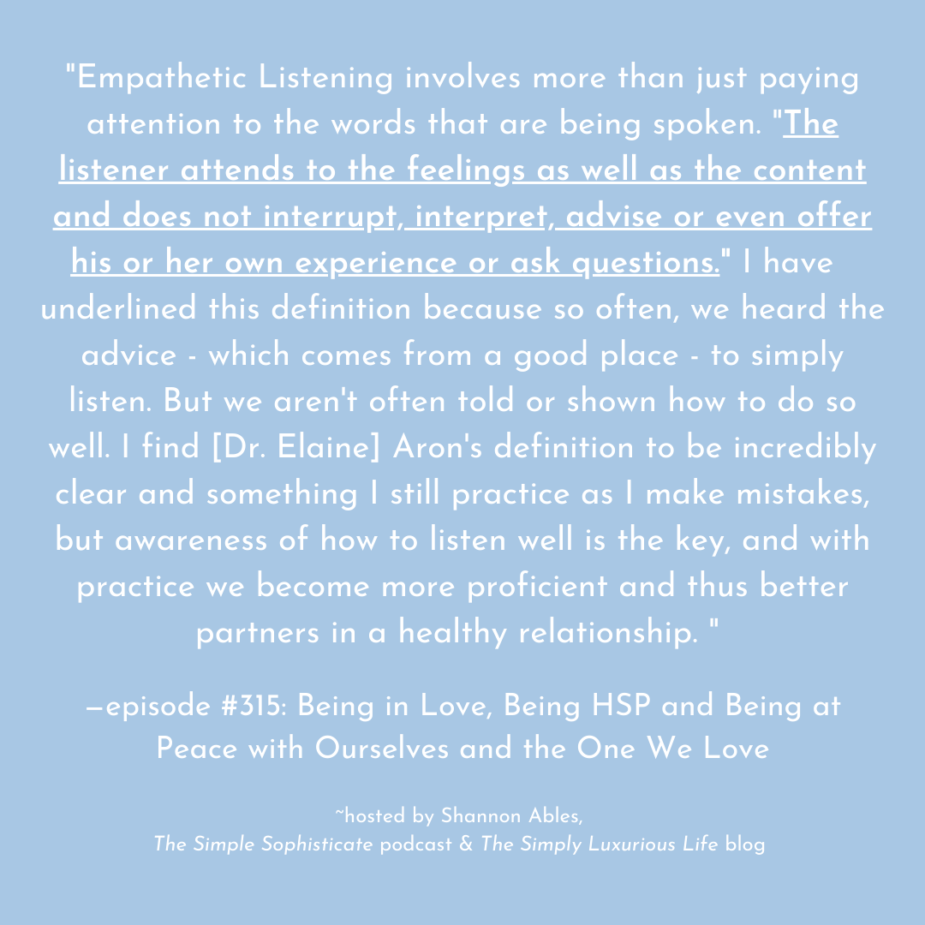 9. Refrain from jumping to the wrong conclusions (i.e don't make blanket assumptions) "Both self-love and other-love increases when we don't make too many personality attributions about ourselves and others, when we recognize that people cannot be completely explained with a label such as shy, rude or even highly sensitive, and that situations are complex, rich, often unpredictable and infinitely interesting." In #4 we talked about how a culture will favor one temperament over another. If you live in a culture that values the temperament you do not align with and you have not had a support system to strengthen your confidence in your awesomeness that you are, you may have a low self-esteem (which can be strengthened, but awareness as to why is helpful to reverse the lack). Because of our low self-esteem or negative past experiences in relationships, when a person we are interested in, perhaps have gone on a date or two, hasn't called back, we can jump to negative assumptions - about them and about ourselves. Don't go there. Instead, do the following: Self-reflect and be honest with yourself about your own reactions. Aron suggests that maybe you actually are not as interested as you think you should be, but you are trying to make it be something it is not. In other words, take a breath, practice patience and go on about your life. If you wanted to call them, do so. Be your true self, express your interest, but keep your healthy boundaries. This will take practice, there will be rejection, by them but also by you, but there will also be peace because you have honored who you are, communicated your feelings and strengthened your muscle of mastering your overarousal. 10. How to prevent overarousal During times of conflict, overarousal can often occur if we are not aware of the signs we are nearing such a state. Again, self-awareness is key. It is also important to note that when we reach a state of overarousal, especially in a situation of conflict, any contribution we attempt or any new information shared is not being processed, which means all engagement is pretty much wasted energy. All of this is to say, knowing how to prevent being overaroused is important. First, if you have spoken out of a state of overarousal - name called, etc. - Aron states, with the support of research, "83 percent of marriages last if the partners show [the] repair skill" of "saying right away 'I shouldn't have said that—I'm sorry'." Apologizing is not a weakness. In fact, it can strengthen relationships and build trust if the same mistake is not made again and again. Aron lists more than a few specific tools to avoid overarousal, and they begin with self-awareness. Are you stressed already? Are you tired? Once you know yourself, how you are feeling in a particular moment due to other circumstances - work, previous conversations, the news, etc. - you can best decide if you should enter into a conversation that you know will increase your arousal and whether you have the strength at that moment to remain in a helpful state of conversation and engagement. In a healthy relationship, compromise does occur, BUT it is important to hold yourself in your awareness here most especially. "Look for every place where you can compromise or give in without feeling you have violated your own needs". And one of the most important approaches, and without it can actually cause more stress on an HSP, is to "agree about when you will resume your discussion and don't put it off too long". 11. Take a breath and take time "HSPs in particular need time to decide about others—you need time, and if the other is an HSP, that person does too. You need time together and you need time between to think it over . . . if you persist, love may grow, or it may die. But time is on your side, in that the more you know each other, the more it will be that whatever happens will be for the best." The willingness to let the relationship evolve naturally, at a pace both are comfortable with can be hard in that sometimes we don't realize we are rushing due to cultural pressure or pulling back out of unexamined fear from past hurts or confusion about our feelings. Again, this is where self-awareness and a confidence in exploring our feelings and then expressing them calmly, yet with strength as to clarify healthy boundaries, moves the relationship forward if both parties continue to be interested. We learn about each other as we spend time together in shared experiences and when we force desired experiences, we sometimes lose the potential of what could be. This is not to say, if we don't force and if we are patient that the relationship will work out as we had hoped. We cannot know how it will turn out, but being ourselves, taking the relationship at the pace it goes while partaking (not sitting back and letting the other person call the shots or not call them and thus letting it dwindle away) is the only way to know what the next right step is. 12. The truth of loving is especially hard for HSPs, love anyway "HSPs especially tend not to want anything to change or die, so this message is important: In long-term relationships you must be ready to endure the nice-friendship aspect of your relationships being betrayed, perhaps through a terrible fight, in order for the passion of the Self, through essential spirit, to be reborn." I wanted to share this last, additional point. Part of the reason I know I have avoid relationships in the past is because it hurts so incredibly much when that person is no longer in my life. Whether in a romantic relationships or friendships and family, our beloved pets. However, part of the reason it hurts is because we loved deeply, and as HSPs, we really do love incredibly deeply. The tools I did not have however in those past relationships are shared in Elaine Aron's book, and I am gradually and consciously trying to use them to build better relationships with more awareness which ultimately deepens my appreciation, holds me in the present moment and reduces the the chance of any regret when the end of the relationship occurs whether by separation or death. I hope today's episode has shared insights you too can use in your own life to strengthen the love you experience and bring ease as you better come to understand and celebrate your self and the gifts of being HSP.
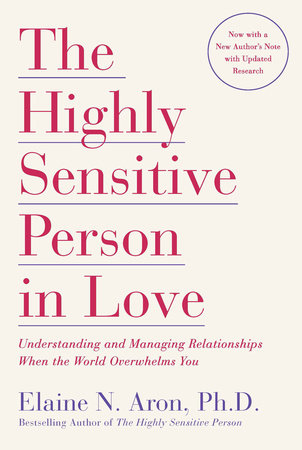 The Highly Sensitive Person in Love by Dr. Elaine N. Aron published in 2001
SIMILAR POSTS/EPISODES YOU MIGHT ENJOY:
 26 Gifts of Being a Highly Sensitive Person (HSP), episode #44
 A Powerful Couple: Boundaries & Vulnerability, episode #126
Petit Plaisir —The Gardener (2018), documentary ~learn more about why I chose the film here and watch the trailer.
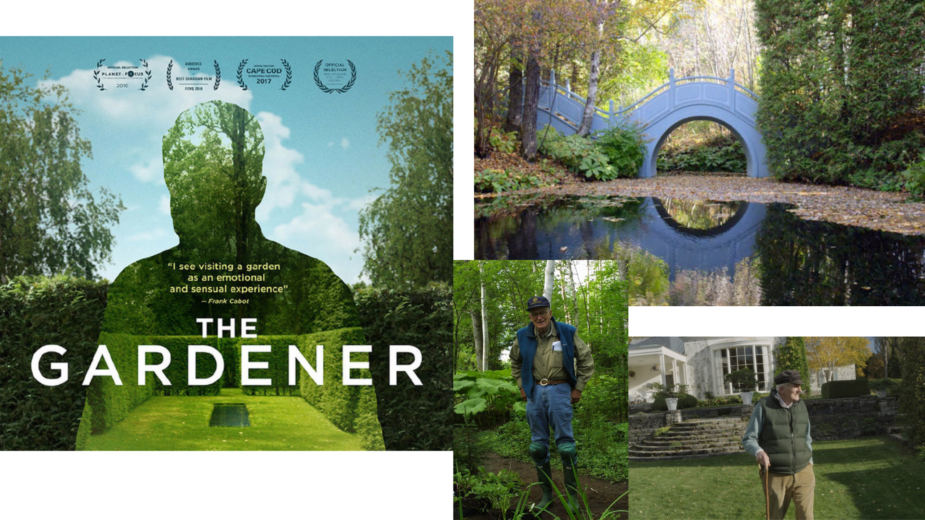 View all TSLL Petit Plaisirs here. ~The Simple Sophisticate, episode #315~Subscribe to The Simple Sophisticate: iTunes | Stitcher | iHeartRadio | YouTube | Spotify | Amazon Music |
Sun, 17 October 2021
"The missing element of oxygen, when brought home, gives us time in which we can record the tiny, visceral, magnificent details of living. The shower after a sweaty workout, a belly laugh with a friend, the warmth of fine whiskey, rain on the roof, or a tight and lasting hug . . . Busy can make you miss it all. Busy keeps you paddling along the surface of the water instead of diving down to see the parrot fish and the fan coral." —Juliet Funt, author of A Minute to Think: Reclaim creativity, conquer busyness and do your best work A thinking life is a happy life. But if you don't give yourself regular time to think well, living well is near impossible. Inspired by my own aha moments most recently as work shifted temporarily to being at home during the pandemic restrictions for in-person work environments, but also throughout my life when I would notice my productivity rise and fall based on the rigidity of my schedule, I witnessed which approach blatantly not only produced the best productivity, but the most joy as well. They were not mutually exclusive.
In fact, each time I have had the opportunity to travel to France, I witness the daily routines of the French, the long lunches, the deliciously untempered dinners that stretch into nearly early morning, and I remind myself to value quality engagement over the quantity of doing more and fitting more into a day's work or even play schedule. A new book, A Minute to Think provides encouraging evidence predominantly from inside the corporate world of the benefit of shifting away from more and instead investing in less. Today I would like to share with you seven ideas to ponder when it comes to how to live a life, that includes work, but is not driven by work, but rather living a fulfilling life, that brings you deeper contentment, joy and satisfaction. ~The Simple Sophisticate, episode #314
|
Sun, 3 October 2021
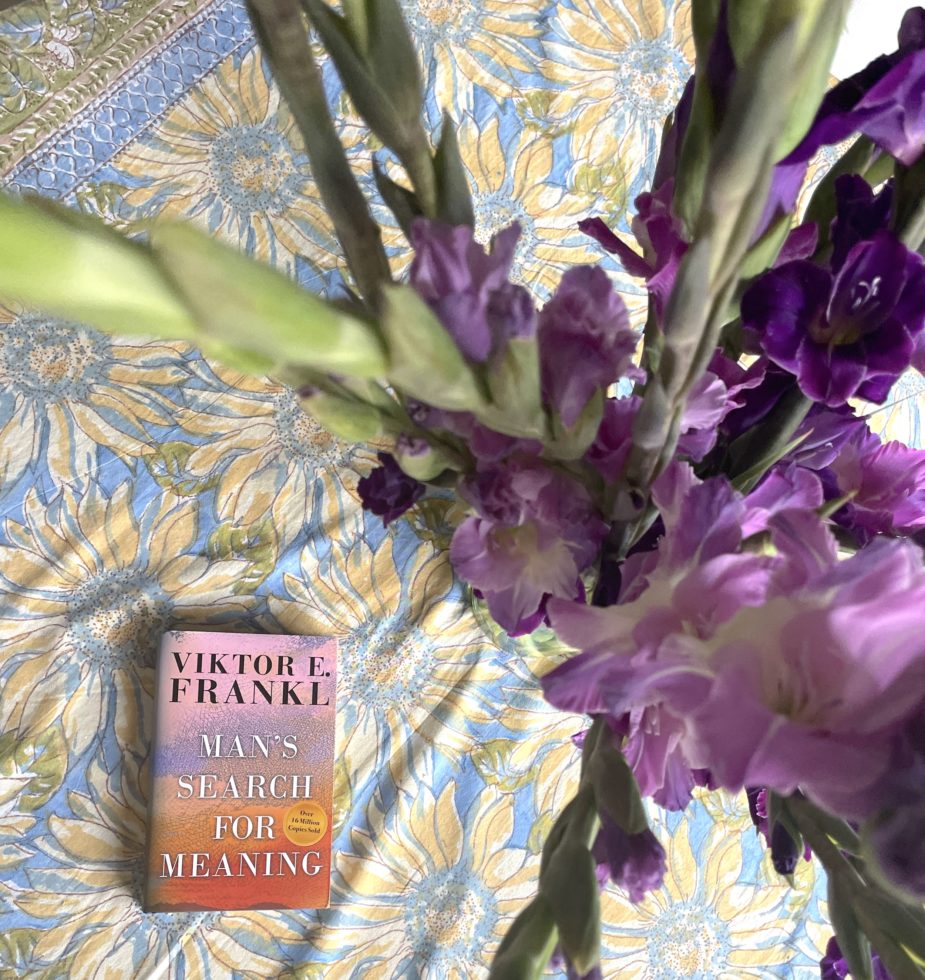 "Man's search for meaning is the primary motivation in his life and not a 'secondary rationalization' of instinctual drives. This meaning is unique and specific in that it must and can be fulfilled by him alone; only then does it achieve a significance which will satisfy his own will to meaning." —Viktor E. Frankl First published in Germany in 1946, Viktor Emil Frankl's seminal work Man's Search for Meaning and the desire to write his first book (to be titled The Doctor and the Soul: An Introduction to Logotherapy) that largely gave him the will to live while imprisoned at Auschwitz during WWII. Marrying psychology and philosophy, a primary focus of his work throughout his life, Frankl shares "Certainly, my deep desire to write this manuscript anew helped me to survive the rigors of the camps I was in." Now with more than 16 million copies sold worldwide, Man's Search for Meaning continues to be a book to read, understand and reread. While not having the opportunity to read it until now, I am grateful that at least I finally did read it, and I would like to share with you today nine lessons learned about the importance of finding meaning in our lives. Much of the premise of a simply luxurious life is centering our lives, our selves, or perhaps a better word is grounding ourselves in priorities that marry what we can uniquely give, but also what the world desperately needs to progress and cultivate a more civil, loving and peaceful place for not only ourselves, but future generations. At first, such a task given to each of us may sound ginormous and far too weighty a task, but when we drill down, ultimately, love, sincere love, being able to share our true selves and be accepted begins to create a harmony of contentment that cannot help but create a symphonic awareness grounded in a desire to live more peacefully and lovingly with each other. Too far reaching some may contest, but if my own life journey, which indeed is filled with good fortune and privilege beyond my choice or control, demonstrates, when we have not found our meaning, when we are discontent, building healthy relationships is incredibly difficult, and often fraught as while trying to make sense of our lack of purpose, we displace our pain, so I wholeheartedly find worthwhile value in exploring what Viktor Frankl teaches, and hope it will offer tools for you as well to tap into what gives you meaning and share it with not only the world but yourself so that your everydays may be full of contentment. Let's take a look at the nine lessons. 1.Choose to pursue the will to meaning Frankl defines the will to meaning as "the striving to find a concrete meaning in personal existence". For when we find our individual will to meaning, the healing begins. Existential frustration subsides, neuroses find solutions, anxieties wane and contentment soars.
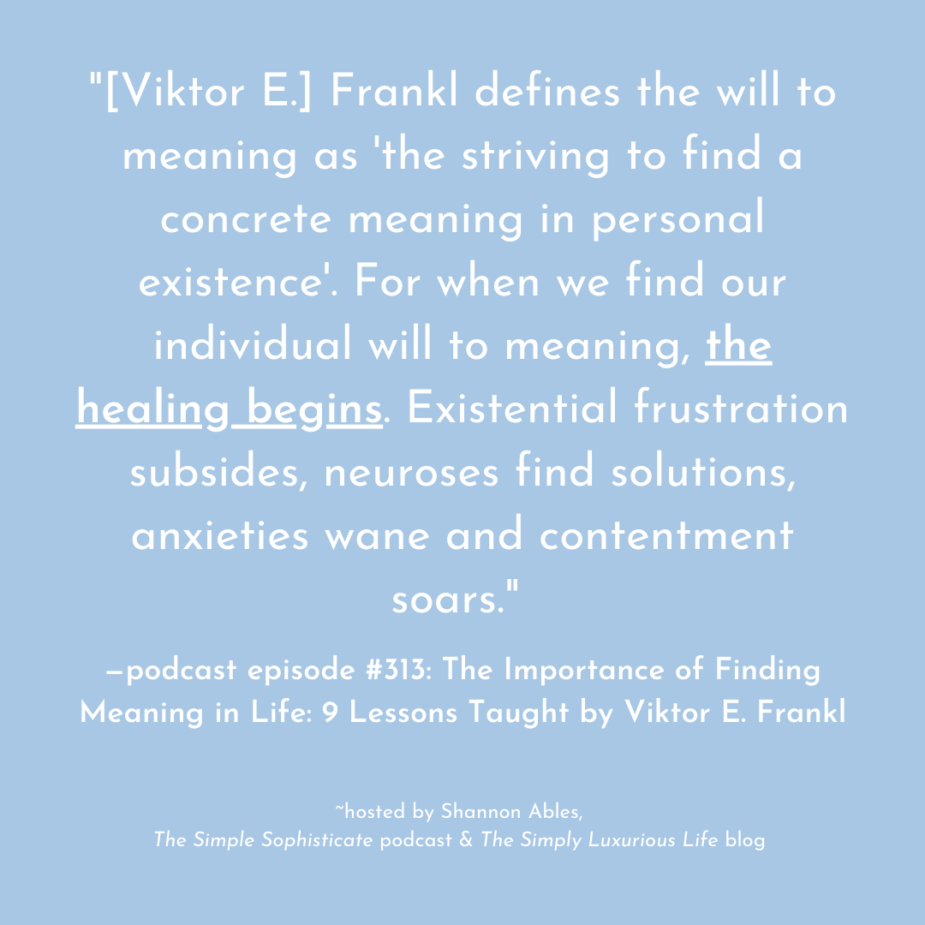 2. Find your meaning, find your way forward Frankl shares an anecdote of an American diplomat who came to his (Frankl's) in Vienna discontent with his current career. Following five unfruitful years with his former psychological analyst who claimed the discontent came from the need to reconcile himself with his father as the analyst made a parallel with the father and the U.S. being a superior figure, upon visiting Frankl, and following only a few visits, the patient realized with clarity that his "will to meaning was frustrated by his vocation, and he actually longed to be engaged in some other kind of work. As there was no reason for not giving up his profession and embarking on a different one, he did so, with most gratifying results." 3. Nothing is wrong with you if you feel existential distress; in fact, you are heading in the right direction Frankl points out, moreso for practicing therapists, to not equate existential distress with mental disease. Asserting, "it is [the task of the therapist], rather, to pilot the patient through [their] existential crises of growth and development." So often in my own life journey, the distress of frustration by my career, my relationships (or lack thereof), and what I was meant to do with my finite days on earth, felt as though it was a burden, not good fortune. Something was 'wrong' with me for not having figured out my life journey immediately, quickly and feeling at ease. Thankfully, the opposite is true, all was well. I was listening to myself, I was acknowledging something didn't 'fit', what I was giving, what I was spending my time doing either wasn't enough or it wasn't aligned with my talents and what the world potentially needed. In this post - 9 Ways to Think Like a Monk, as taught by Jay Shetty - Shetty's idea of Dharma is shared. Passion + Expertise + Usefulness = Dharma In many ways, finding our Dharma is to find our will to meaning. 4. The unexpected gift of tension "What man actually needs is not a tensionless state but rather the striving and struggling for a worthwhile goal, a freely chosen task. What he needs is not the discharge of tension at any cost but the call of a potential meaning waiting to be fulfilled by him." I chose to bold the phrase 'freely chosen' because I find it to be an essential element to finding true contentment. Even if your life is charmed, yet you still feel discontent and frustration, yet society applauds, your family applauds, your friends cheer for what you are doing with your life, most likely, you have unconsciously not chosen for yourself the life you are living, but rather have been steered by approval, expectation and mores to take the steps and make the choices you have without truly acknowledging what you long for. Which leads me to the next item on the list, but first . . . Welcoming tension in your life must be thoughtfully done. After all, unnecessary stress is harmful to our health. No, what Frankl means by stating tension is healthy has everything to do with pursuing what gives you meaning. If you derive meaning from advocating for a cause, then the path forward will undoubtedly be fraught as you are striving for progress, but you strive forward anyway because it is your will to meaning. If you derive meaning from raising a family, nurturing your children as to give them their own wings with which to fly, the journey together will be a mingle of emotions, but you strive forward because it is your will to meaning. If you derive meaning from contributing through your chosen career path to improve the lives of others, you navigate through the frustrations, setbacks and hurdles because it is your will to meaning and you know why you are pursuing it. When the path we are on does not fulfill our will to meaning, similar to the anecdote of the American diplomat mentioned above, then the tension becomes unhealthy. Then we must be frank with ourselves and find the courage to change course and bravely do so, not only for our own well being, but for those we love and the world at large. Why? Because the world needs what you uniquely have to give. Figure out what that is and then begin giving what you discover. Your tension will be reduced to a healthy amount and your contentment will soar. 5. Discover what you long for and find your contentment The term Logotherapy as defined by Viktor E. Frankl derives its meaning from the Greek root Logos which is defined as "meaning". Logotherapy "strives to find a meaning in one's life as the primary motivational force of man". Logotherapy opens itself up while including 'instinctual facts within the individual's unconscious [it] . . . also cares for existential realities, such as the potential meaning of his existence to be fulfilled as well as his will to meaning." In other words, Logotherapy assists the patient to become aware of "what he actually longs for in the depth of his being". Understanding the language of your true self can sometimes be difficult and take time especially if we have suppressed it for some time; however, we are each capable of learning our language when we choose to be a student of ourselves. As I share in my About page (I recently updated it to reflect more accurately and specifically what TSLL is all about, but the shared portion below remains the same as it did in 2009), while I valued and gave my all to teaching, in 2009 I finally acknowledged that something wasn't entirely being satiated by solely working in the classroom." (see the excerpt below)
When we find meaning, even if nobody else understands why such a path speaks to us and brings us to life, we have found the motivation of infinite energy, creativity, tenacity and strength. 6. Find your meaning, eradicate boredom Frankl coins the term 'Sunday neurosis" as "that kind of depression which afflicts people who become aware of the lack of content in their lives when the rush of the busy week is over and the void within themselves becomes manifest." He goes on while speaking about the existential vacuum to share that without the will of meaning, and with the improved automatization of our 21st century, "many will not know what to do with all of their newly acquired free time". Which is to say boredom, anxiety, distress and lack of direction cause more solvable problems that he argues can be largely solved when we find our will to meaning. This is not to say you have to be busy every moment, pack your schedule with appointments; in fact, I would argue, it is the opposite. Or perhaps, more accurately, it is a knowing what supports and nourishes your will to meaning and thereby finding comfort with your down-time that is a part of your self-care and confidently engaging in your productive time when on task. 7. Your next best step toward meaning is what is best for you "The meaning of life differs from [person] to [person], from day to day and from hour to hour. What matters, therefore, is not the meaning of life in general but rather the specific meaning of a person's life at a given moment." I found it helpful to note that Frankl directly advises not to search for an abstract meaning of life, but rather a concrete 'assignment which demands fulfillment'. In other words, don't commodify yourself, but rather what is it you bring that is helpful and that you find fulfillment in giving? "Thus, everyone's task is as unique as is his specific opportunity to implement it." 8. Finding strength during times of suffering "When we are no longer able to change a situation, we are challenged to change ourselves." Just as Frankl's own life exemplifies harnessing his will to meaning to survive the unthinkable tragedies and struggles during WWII, he writes, "In some way, suffering ceases to be suffering at the moment it finds a meaning, such as the meaning of a sacrifice." However, and this is crucially important to absorb, he continues on in the same section of the book to point out "But let me make it perfectly clear that in no way is suffering necessary to find meaning. I only insist that meaning is possible even in spite of suffering—provided, certainly, that the suffering is unavoidable." 9. Hold yourself in the present fully for all the days of your life Frankl writes that we must refrain from being pessimistic and instead be activistic when it comes to our human existence. That is to say, "The pessimist resembles a man who observes with fear and sadness that his wall calendar, from which he daily tears a sheet, grows thinner with each passing day. On the other hand, the person who attacks the problems of life actively is like a man who removes each successive leaf from his calendar and files it neatly and carefully away with its predecessors, after first having jotted down a few diary notes on the back. He can reflect with pride and joy on all the richness set down in these notes, on all the life he has already lived to the fullest." He goes on to suggest there is no need to envy the young because we have lived fully each of our days, holding ourselves in the present, motivated by our will to meaning, and "instead of possibilities . . . have realities [from our past experiences] . . . not only the reality of work done and of love loved, but of sufferings bravely suffered." Just as happiness cannot be experienced in every moment, suffering cannot be wholly avoided when we find our will to meaning and let it guide us forward. However, by holding ourselves in the present moment, while we cannot avoid experiencing the loss of loved ones, we can love fully, so that when we reflect, we are filled with joy and reminded of the riches of our lives, riches we, by bravely living well, engaging with our humanity, courageously stepping into what we discover is our will of meaning, helped to bring forth into our lives. Upon learning about Viktor E. Frankl's approach to therapy and perspective on the meaning of humans, I found an alignment that has unconsciously spoke to me to honor for decades. Although never making sense, and not having the opportunity, nor pursuing more intentionally philosophy courses in college, the ideas danced about in my mind, and while I, at the time, wanted them to leave me alone because they were so perplexing, they thankfully waited for me to make sense of them, to trust them. The world swirling around us via media, messaging, our community can be deafening and hold us off course if we let it. But when we understand that the feeling of frustration is actually a sign that we are hearing our inner voice, we can find peace. Because in that moment of aha, we can take a breath, and continue to pursue the questions that keep bouncing around in our mind, because, if my own journey is any indication it is a path that will lead you to everyday contentment. I do hope you enjoy this week's episode of the podcast. Thank you for stopping by and tuning in.
 Man's Search for Meaning by Viktor E. Frankl
SIMILAR POSTS/EPISODES YOU MIGHT ENJOY:
Petit Plaisirs
 —Ted Lasso, Apple TV+ (click here to learn more about the recommendation, watch the trailers of both seasons and the original ad which began the idea for the show)
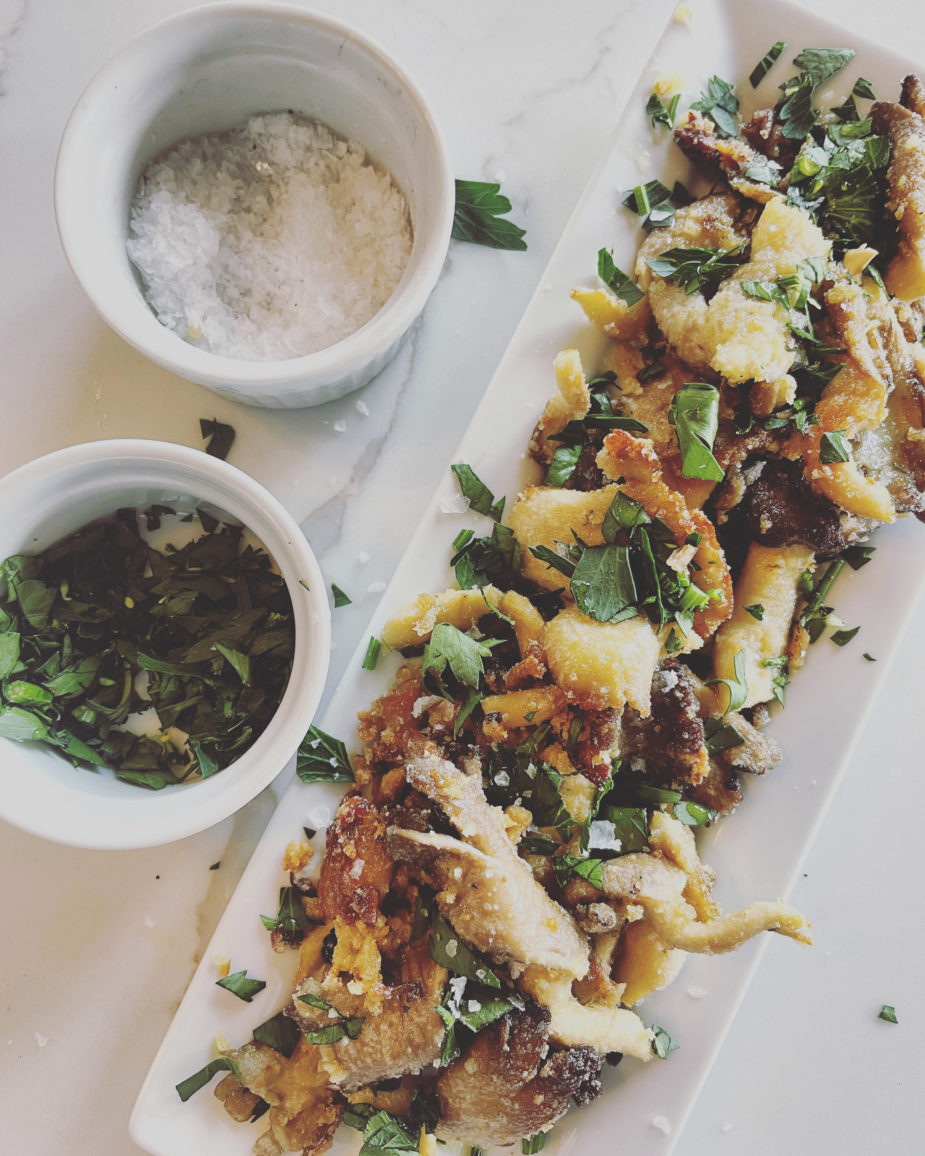 —Sautéed Oyster Mushroom Appetizer (view the recipe here) View more Petit Plaisirs here. ~The Simple Sophisticate, episode #313~Subscribe to The Simple Sophisticate: iTunes | Stitcher | iHeartRadio | YouTube | Spotify | Amazon Music |
Sun, 19 September 2021
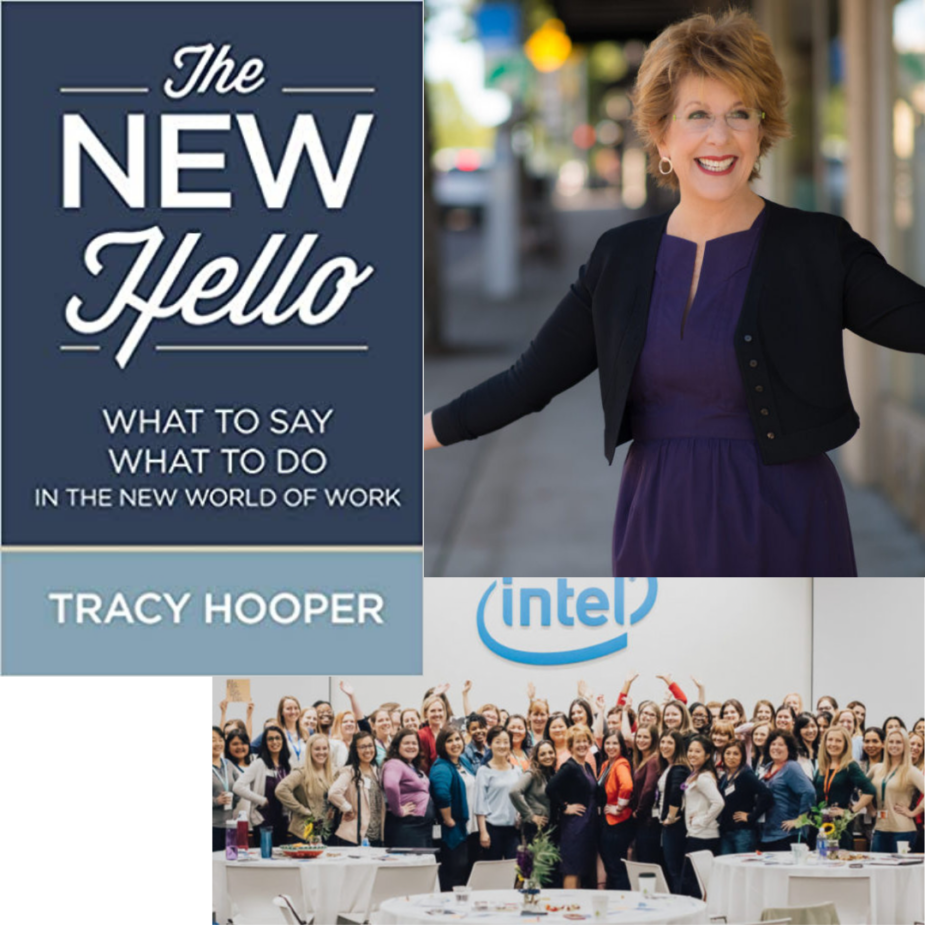 The workplace has shifted in a short amount of time, largely due to the pandemic, but also prompted by many other social and environmental awakenings. Communication, civil communication, remains at the epicenter of a civil society; however, currently, a significant learning curve has taken place, and we need to keep up in order to strengthen connections, build trust and foster workspaces of inclusion. My guest on today's podcast, Tracy Hooper, the founder of The Confidence Project, released a new book The New Hello: What to Say, What to Do, in the New World of Work this past year to share with us all the how and the why to practicing and learning the skills of clear communication paired with acute awareness of others to create a workplace of mutual, positive benefit and exchange. Having known Ms. Hooper for ten years (she was a guest on the show during its first season), we had a wonderful video chat for today's episode (audio only). Listeners will learn specific examples of skills to utilize not only in their work life, but their personal life as well to strengthen relationships and honor our own boundaries and voice. Items of Discussion in today's episode:
I highly recommend The New Hello for not only our current times, but all times, as Tracy shares years of research and experience with a vast variety of workers and individuals, teaching the importance of self-awareness (how we speak - the words we use and what is conveyed, whether we intentional or by default; as well as our body language) and awareness of our surroundings and those we work with ensuring all parties feel comfortable, welcome and heard.
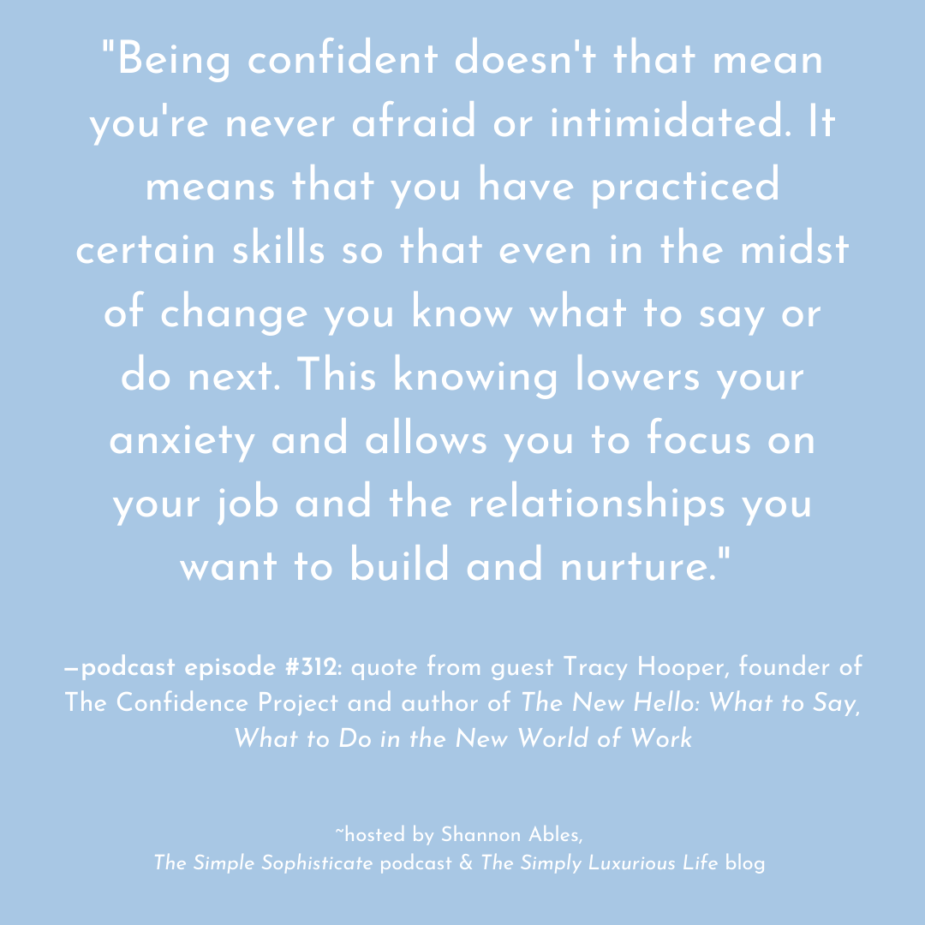 Links to explore:
 Confidence: How to Gain It & Why It's Invaluable, episode #5
 Learn more about The New Hello (available in paperback and audio) ~I greatly appreciate what Tracy shares in this IG video (below) about standards and respecting the ones we have for ourselves whether in business or in our personal lives
Petit Plaisir As well, Tracy shares this episode's Petit Plaisir, a priceless example, something each of us can incorporate into our daily lives, to deepen our contentment, calm our minds and settle our being. Shared below, Tracy's zinnias surround her outdoor space at home to sit, relax and slow down during the summer months.
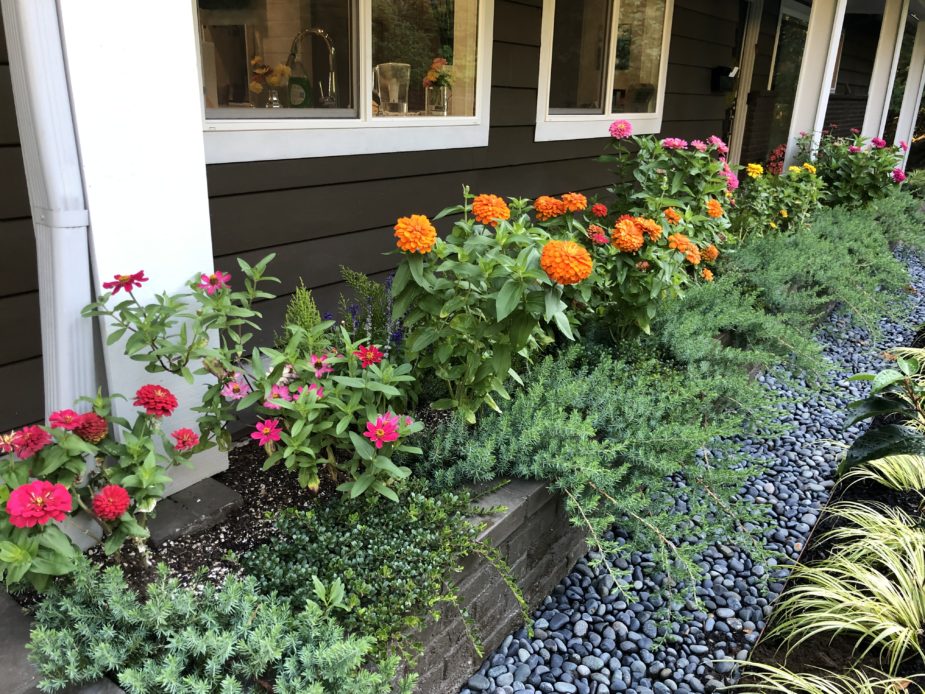
 . View more Petit Plaisirs here. ~The Simple Sophisticate, episode #312~Subscribe to The Simple Sophisticate: iTunes | Stitcher | iHeartRadio | YouTube | Spotify | Amazon Music |
Sun, 5 September 2021
"The world is already broken. And what's true of the state of civilization is equally true of your life: it was always already the case that you would never experience a life of perfect accomplishment or security. And your four thousand weeks have always been running out. It's a revelation, though: when you begin to internalize all this even just a bit, the result is not despair, but an energizing surge of motivation . . . You realize that you never really needed the feeling of complete security you'd previously felt so desperate to attain. This is liberation." —Oliver Burkeman, author of Four Thousand Weeks: Time management for mortals Admittedly, the length of a human life is short when we take the long view of civilization, so it is understandable for us to make the most of our time. However, in so doing, we often go about 'making the most of it' in unhelpful, counter-intuitive ways. Oliver Burkeman wrote a long-running and award-winning weekly column for The Guardian up until last year. He is also the author of The Antidote: Happiness for People Who Can't Stand Positive Thinking, and so after reading his final column for The Guardian, and the synopsis for his first book, I had an idea of his frank, yet considered and sincere approach to what he shares with his readers. Four Thousand Weeks is not your typical time management book. Thank goodness. It is a book to open our eyes to the reality of our mortality, no matter how much we may profess we accept that we will die, we demonstrate through our actions, how we live, we may not have fully absorb this life truth. But don't worry, Burkeman shares in his introduction, his objective is to write a book that helps each of us "redress the balance [of our finite time on this planet and engage productively with fellow citizens, current events and the fate of the environment]—to see if we can't discover, or recover, some ways of thinking about time that do justice to our real situation: to the outrageous brevity and shimmering possibilities of our four thousand weeks." I have pulled ten tips he shares about how to live more deeply, and thus more contentedly in our everydays and thus our entire life; however, there is much more in the book and I highly recommend reading it in its entirety. Let's take a look at the list. Visit the full Show Notes on The Simply Luxurious Life — thesimplyluxuriouslife.com/podcast311 |
Sun, 29 August 2021
In just one week's time, a new season, Season 8, of The Simple Sophisticate podcast will begin. Already, my bookstand is full of titles that have piqued my interest to compile into podcast episodes to inspire, inform and motivate you to cultivate your own unique simply luxurious life. Below is a visual of the entire season running from September of this year through August of 2022. You may also download a pdf of the schedule here. With more than 20 episodes, sharing two new episodes every month on the first and third Monday of each month (even April and May which were previously removed from the schedule in previous seasons due to my teaching schedule), the only month off will be July which gives me time to produce my cooking show's latest season which debuts each September. In November, you'll notice, there are three new episodes as many listeners are traveling during this time of year, and I thought what better time to provide more listening material? Visit the full Show Notes on The Simply Luxurious Life — thesimplyluxuriouslife.com/podcastseason8schedule~Subscribe to The Simple Sophisticate: iTunes | Stitcher | iHeartRadio | YouTube | Spotify | Amazon Music |
Wed, 11 August 2021
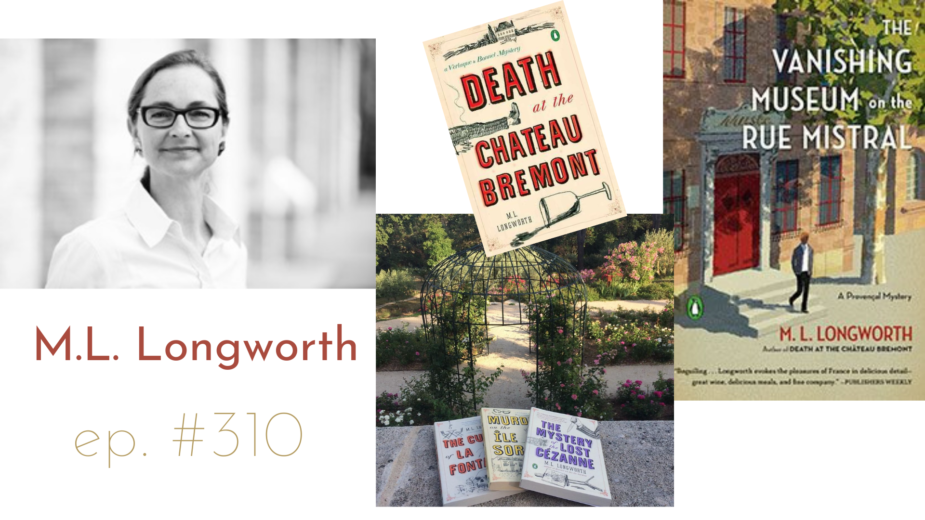 Provencal mystery writer M.L. Longworth joins me on the podcast for this year's French Week to share some exciting news about her series. I invited Mary Lou back to the show (see our previous conversations here - ep. #268 - and here - ep. #203) as I recently learned her novels had been optioned for a television series to air on BritBox. Longworth shares many details about the cast, when it will premiere, which books will be included in season one and much more. Be sure to take the tour of Aix-en-Provence she gave me in this post to enjoy a taste of the world of Antoine Verlaque and Marine Bonnet, and tune in to today's episode as she talks about food, shares a delicious recipe AND shares the synopsis for her upcoming 10th mystery and when to expect it to be released. Links mentioned during our conversation:
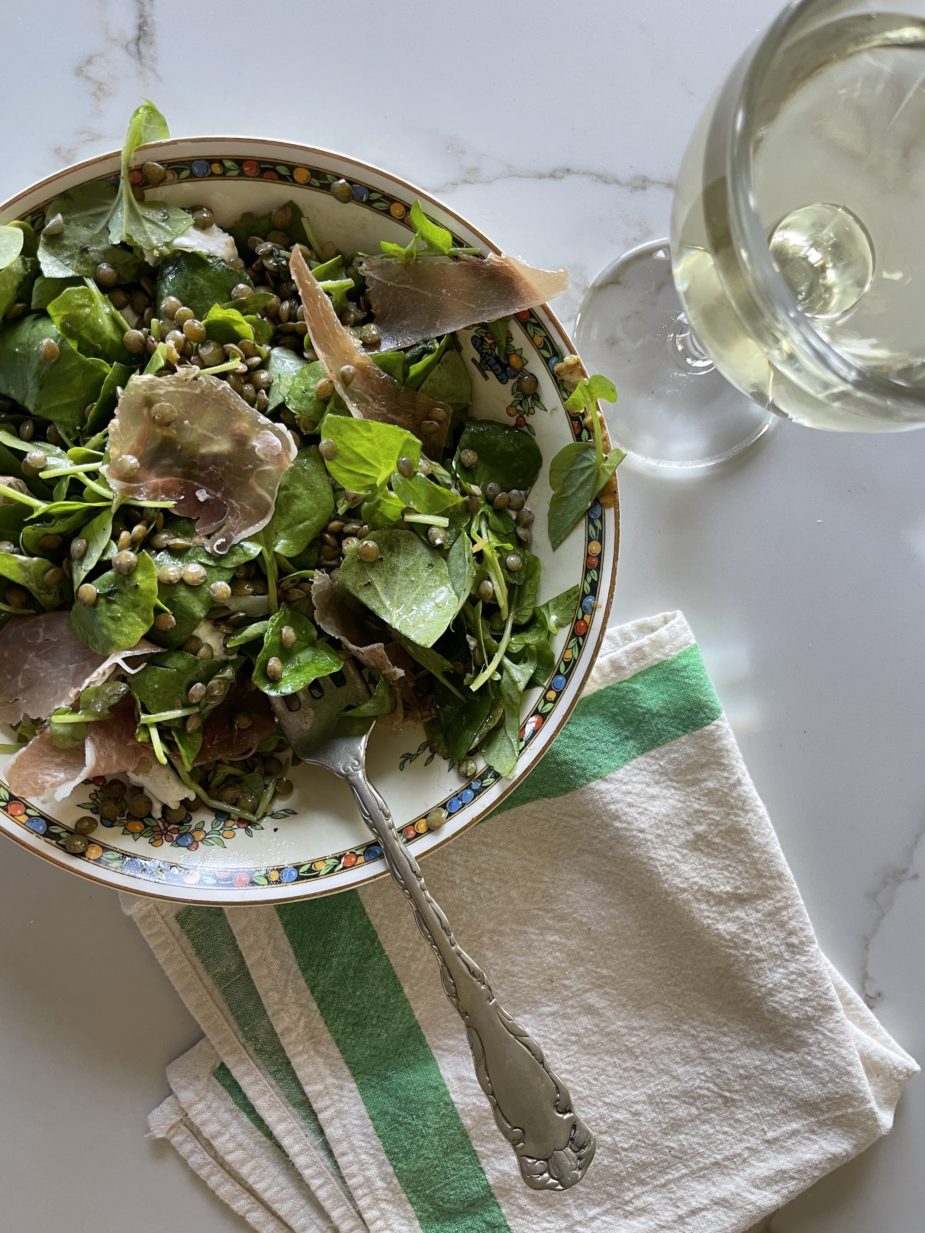 M.L. Longworth's Lentil & Duck Breast Salad
As shared during episode #310 of The Simple Sophisticate podcast, Provençal mystery writer M.L. Longworth shared a recipe during our conversation that offers a quintessential taste of summer in Provence.
~Sign up for TSLL's Free Weekly Newsletter ~The Simple Sophisticate, episode #310~Subscribe to The Simple Sophisticate: iTunes | Stitcher | iHeartRadio | YouTube | Spotify
EXPLORE MORE POSTS FROM FRENCH WEEK 2021
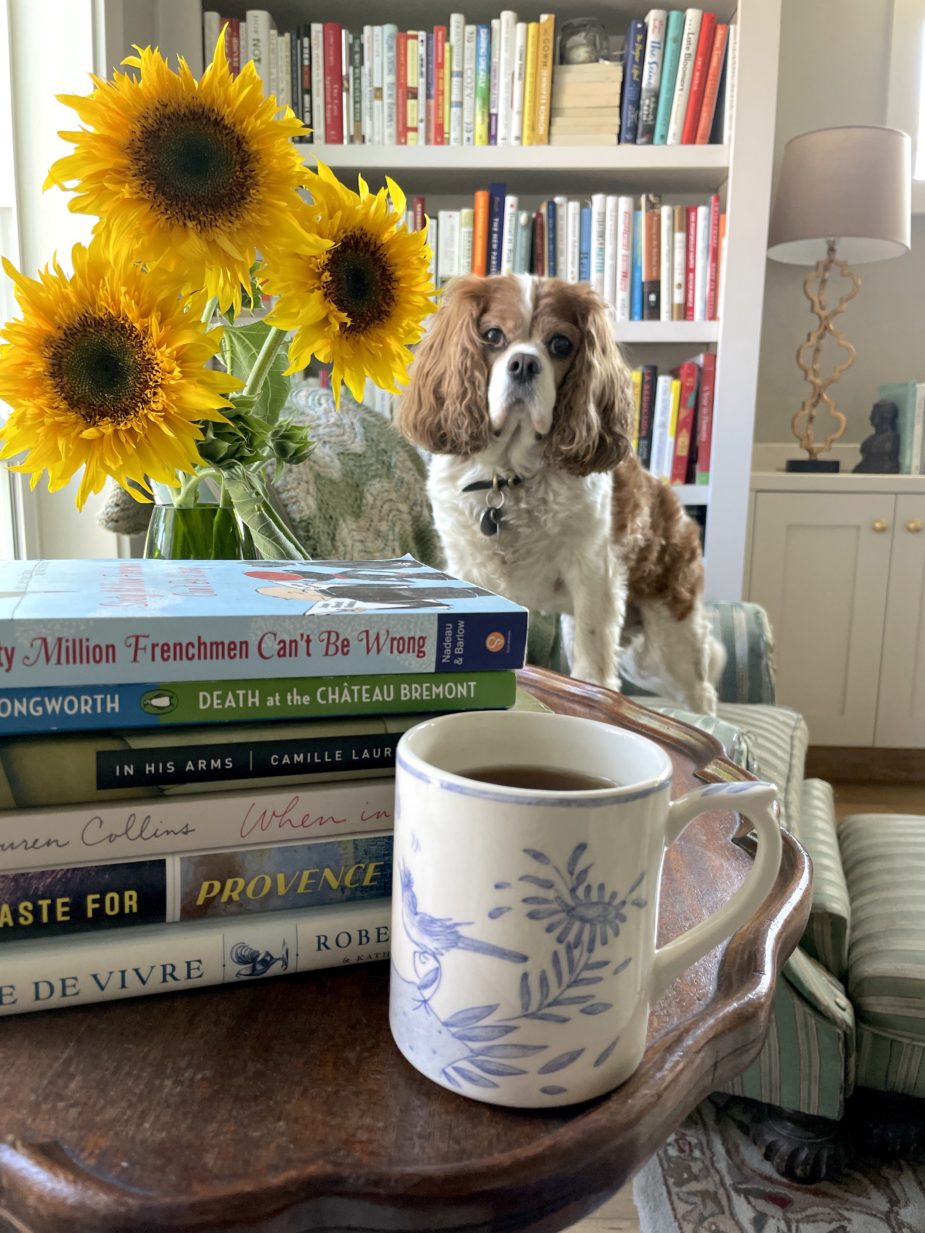 3rd Giveaway: A Cozy Francophile Gift Package
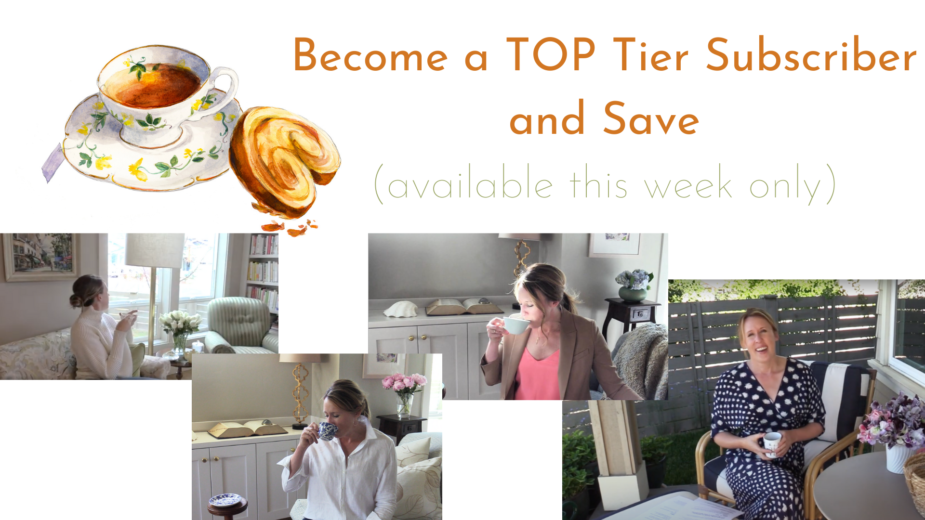 ~View more TSLL French-Inspired posts in the Archives |
Sun, 8 August 2021
 One day in the not too distant future, the dream will be realized for each one of us who longs to hop on a plane and slip away to Paris. Frequently during my daydreams I envision just this scenario happening, and when I do, I will find peace of mind knowing my accommodations with Paris Perfect await my arrival. On today's episode discover just exactly makes each rental perfect for travelers looking to savor all that Paris has to offer - from the thoughtful attention to every detail down to how many outlets are in each apartment to carefully considered mattresses made in France and sofas made in Italy. Everything from the moment you arrive at the airport to any question you might have while you are in the city of light has been addressed. And who wouldn't want to wake up to a view of the Eiffel Tower? As so many Paris Perfect rentals offer, explore and find the ideal home-away-from-home for your next trip.
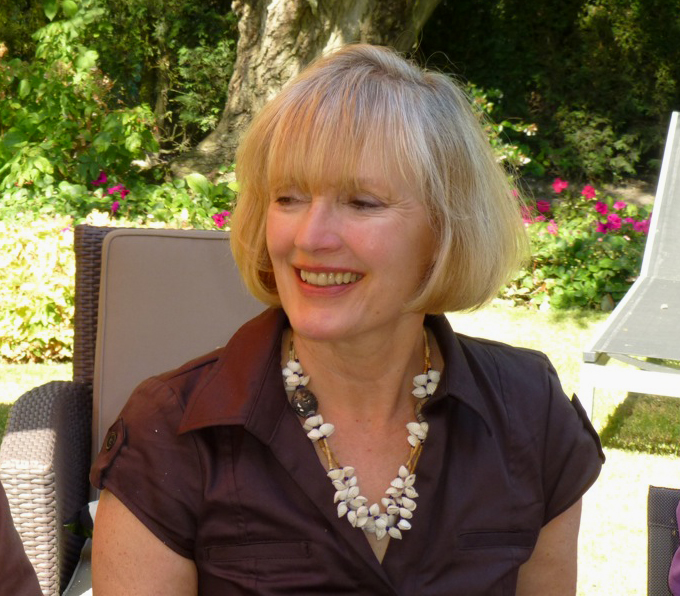 I am incredibly tickled to welcome to today's episode of the podcast the founder of Paris Perfect and London Perfect Madelyn Byrne (seen right). Her sister, Lisa Byrne is the General Manager of Paris Perfect, London Perfect, Italy Perfect as well as the Founder of Italy Perfect, and kindly arranged for this opportunity. What Madelyn shares will, I have a feeling, entice you to want to purchase that ticket to France sooner rather than later. ❤️🇫🇷☺️ Tune in to the latest episode of the podcast, in celebration of TSLL's 6th Annual French Week and discover why I personally recommend making reservations with the Paris, London and Italy Perfect team, as well Madelyn shares tips for success in any business venture you may be dreaming about, what life is like currently (as of June 2021 when the conversation was recorded) in both France and Italy at the moment due to covid, two Petit Plaisirs and much more. I do hope you enjoy today's episode. ~Tour the London Perfect flat I stayed at as discussed in our conversation in today's episode: London Perfect: A Traveler's Sanctuary Visit and/or Follow Paris, London and Italy Perfect via the links below:
 ~Viognier rental~ ~Viognier rental~
 ~La Lande rental~ ~La Lande rental~
 ~Beaujoulais rental~ ~Beaujoulais rental~
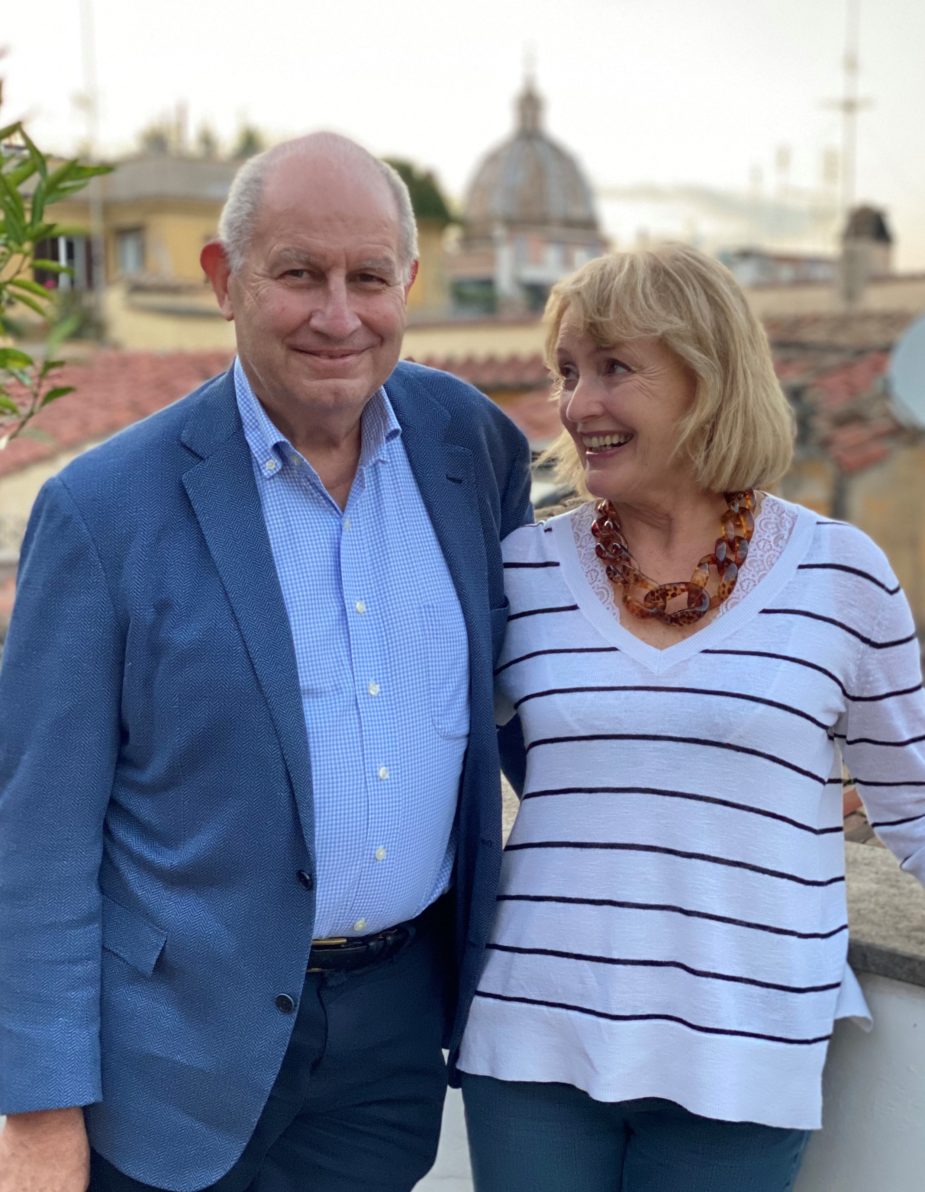 Madelyn & Philippe ~The Simple Sophisticate, episode #309~Subscribe to The Simple Sophisticate: iTunes | Stitcher | iHeartRadio | YouTube | Spotify
Explore All Posts/Episodes from this year's 6th Annual French Week
 ~All images courtesy of Paris Perfect |
Sun, 20 June 2021
Ten years of visiting, followed by three years of construction and refurbishing, and now Shauna Varvel's family Provençal mas situated just outside of Avignon, France, is an exquisite Provençal destination to see both inside and out. Feasting first on the thoughtfully designed and decorated property through Instagram beginning in 2018, I continued to follow her as the property named Le Mas des Poiriers as well as serving as a family home for her and her husband, their adult children and the growing grandchildren, is also now available for rent (although, likely for the most elite due to the price point - which it is worth based on the expansive grounds and thoughtful decor).
Featured in Veranda's April 2019 issue, inspiration abounds whether or not we will be able to visit and see with our own eyes, as Varvel's new book Provence Style: Decorating with French Country Flair (published by Vendome, photography Luke White) was just released earlier this month. With today being the first day of summer in the northern hemisphere, I thought what better way to celebrate the ideal season during which to visit Provence than by dedicating this week's podcast episode entirely to welcoming the Provençal decor and garden ideas into our home and lives wherever we may call home. Having had the opportunity to receive and read Shauna's book, if you are looking for visual inspiration as well as a historical exploration of the design styles associated with Provence, Provence Style is a book you will appreciate and find incredibly resourceful. In today's episode I have gathered 15 ideas adding a touch or a wealth of Provençal decor inspiration to our sanctuaries. Let's take a look. Visit the full Show Notes on The Simply Luxurious Life — thesimplyluxuriouslife.com/podcast308 |
Sun, 6 June 2021
"Your life will tell you the truth." —Martha Beck, author of The Way of Integrity: Finding the Path to Your True Self Divided. Compartmentalized. Unable to give what is needed, not by choice, but by pure, sincere inability due to time and energy. Signs of living a life off the track of the way of integrity. Martha Beck explains in her new book, The Way of Integrity, the word integrity originates from the Latin integer meaning "in tact" and therefore cementing the definition of integrity as "to be one thing, whole and undivided". When we are not living a life of integrity, we are not being true to ourselves, nor the world. Now you might be thinking about the general and more commonly understood definition of integrity - living by your 'values' or abiding by the morals society applauds, but this is not what Beck writes about in her book. Instead, Beck looks at the true meaning of the word and applies it to each of us individually, daring to step away from any culture’s expectations - a life of integrity is one when you have aligned your body, mind, heart and soul - your actions, your mental strength, your true self - you set yourself free. In the introduction she uses a phrase commonly known on this blog/podcast - you achieve a sustainable joie de vivre. "You may not believe that such a fulfilling life is possible. It is," Beck states with calm, assured confidence and goes on throughout the rest of the book, speaking from her own incredibly challenging and terrifying and finally liberating life journey, indeed what she shares is true. "No matter how far you think you've strayed from your true path, the moment you say I'm going to trust myself, I'm going to follow my truth, the healing begins." Beck's book crossed my path just after I had officially and publicly announced a resolve to live my own life of integrity as I had turned in my resignation papers concluding a 20-year career in teaching public education at the secondary level. I arrived at my decision after more than a few years of hemming and hawing about such a choice being necessary for me to live fully in alignment with what I knew to be true in my heart of hearts. And, as I shared in my May episode of the video series A Cuppa Moments (learn more about becoming a TOP Tier subscriber and discover more intimately why I made this decision here), it wasn't about running away; it was about running toward something I loved even more. Another way of looking at the way of integrity is much like putting together a puzzle. It can be especially hard to rationalize why we should leave something when on paper and to onlookers everything hums along beautifully, but if the puzzle doesn't allow your true nature to be nurtured, as Beck describes, when you are "rushing to conform . . . often ignoring or overruling [y]our genuine feelings—even intense one, like longing or anguish—to please your culture . . . you've divided yourself. [You] aren't in integrity (one thing) but in duplicity (two things)." In other words, the puzzle isn't your puzzle to be a part of. Having the courage to step away from something that works, even if we languish while others shine is not living a life of integrity. "When you pursue a career that pulls you away from your true self, your talent and enthusiasm will quit on you like a bored intern." The question we each need to ask ourselves is, “Does the culture nurture your nature?" Pause for a second before answering because I would have answered yes a couple of years ago as the quality of my overall life improved immensely having moved to Bend, Oregon. And what enabled me to move to this dream-of-a-town in my eyes? A teaching job; however, upon reflection, with more truths revealed, and after reading her book, my answer whilst trying to teach and write, is most certainly no. Visit the full Show Notes on The Simply Luxurious Life — thesimplyluxuriouslife.com/podcast307 |
Sun, 16 May 2021
The French define le Petit Plaisir as a simple indulgence that brings great pleasure and enjoyment. In English, the translation is easy to note - small pleasures, yet significant in their ability to elevate the everyday. This week on the blog is TSLL's 3rd Annual British Week, and while yes, the term Petit Plaisirs is notably French, my affinity for the British culture is grounded in so many of the Brits' daily rituals, appreciation for nature which surrounds each waking day, and the dogged determination to keep calm and carry on coined and released to the public in 1939 in an effort to steel the nerves and assuage the fears of the impeding war. As I sat down this past Saturday, savoring a weekend to spent entirely at home, I took a moment and glanced about. So much of how I structure my own everydays welcomes British influences. Most seemingly simple, but others which have come about intentionally, with patience and clear-eyed understanding of the comfort they would bring into my life and sanctuary. Today I would like to share with you 25 British-inspired Petit Plaisirs, and please do share in the comments, rituals or routines you welcome into your own life which are inspired by your Anglophile predilections. Visit the full Show Notes on The Simply Luxurious Life — thesimplyluxuriouslife.com/podcast306 |
Sun, 18 April 2021
Awaking without an alarm clock. Letting the body and mind in tandem wake up after having receiving the necessary amounts of sleep, my goal as I move forward in life is to have more mornings awoken only by the morning murmurs of the fresh air, the birdsong, the quiet of the house as the sun begins to gently start the day. If you have ever experienced jet lag, you know what it feels like, what it sounds like when your body and mind to speak, asking, "Why aren't we sleeping right now?". Whether you are traveling across multiple time zones or not, your body and mind need deep consistent rest, and when we listen to and honor what we hear, we begin to live a life of healthy harmony. We are better able to manage our emotions, stay present, be patient, think clearing and so much more. Sharing the nine benefits of a good night's sleep a couple of years ago, I have no doubt you know the importance and value of a good night's sleep, but knowing and creating a space in our sanctuaries to offer a nightly restful slumber can be two different things. Today, inspired by the completion of my primary bedroom's restyling (tour the full bedroom customizataion here - Parisian Elegance marries English Country Comfort Aesthetics in TSLL's Primary Bedroom Reveal - view before and after photos included along with all of the details, links and decisions behind the choices), I wanted to introduce next week's post with a post sharing 36 Bedtime Daily Rituals and Essential Details for a restful slumber. To know what we need is one thing. To know how to cultivate it can be a bit more difficult to ascertain, but what I have learned over the years having never used an alarm clock during my teenage years, the daily necessary ingredient for an everyday of contentment is a good night's sleep. Visit the full Show Notes on The Simply Luxurious Life — thesimplyluxuriouslife.com/podcast305 |
Sun, 4 April 2021
Today on the podcast, the creators of the new book Artists in Residence join me to talk about not only their collaboration, but also how readers can find inspiration to look at their own sanctuaries as a haven, decorating it in such a way as to nurture presence and the unique creativity each inhabitant would like to share with the world. Melissa Wyse is the writer and through her research, so many details largely unknown to the wider public are shared about each of the 17 artists' residences and their life stories. Kate Lewis brings to vivid imagery each of the intimate spaces with her illustrations. yYou will find yourself looking at all of the detail, going back and forth between the written word and the painted peek to gain a sense of how the artist lived. Not only a book to feast upon with the eyes, but inspire you to honor your own gifts, find time to explore and share them and motivate others to do the same just as Kate and Melissa have done. Visit the full Show Notes on The Simply Luxurious Life — thesimplyluxuriouslife.com/podcast304 |
Sun, 14 March 2021
"Living your purpose will make it possible to do all the things you need to do to reach the goals you need to reach in order to fulfill your dreams, which are as big as the world and as optimistic as your mind can imagine." —Norma Kamali, author of I Am Invincible Change is inevitable, in the world, our bodies and our lives. How we navigate life's endless changes determines the quality of our lives, especially during our everydays and how we experience each 24-hours, but from the longview of life, it will determine the legacy we create, the connections and relationships we make and build and how or if we contribute positively to a better world tomorrow. Fashion designer Norma Kamali's new book, part memoir, part lifestyle/self-esteem builder I Am Invincible is aptly described by Cynthia Rowley as "personal power with a side of popcorn". Upon the book's arrival, I read it in one day. Highlighting constantly, stopping and rereading, taking closer notes so as not to forget and apply immediately her wisdom to my life, I couldn't wait to share with podcast listeners and blog readers (where does the 'side of popcorn come in you may be wondering? she shares a simple, yet delicious recipe for homemade popcorn - I tried it the next day - yep, loved it). Her book begins with the driving question: If you can control the quality of your life, why not do it? And while she definitely had me at Why Not . . . ? I couldn't agree more that indeed we should invest and apply in all the areas we can to elevate the quality of our lives. Today's episode/post shares 33 of which there are many more lessons discovered as I read her book. I hope you enjoy. Visit the full Show Notes on The Simply Luxurious Life — thesimplyluxuriouslife.com/podcast303 |
Sun, 28 February 2021
Over the weekend I quietly celebrated my 42nd birthday. It was lovely. It was full of much contemplation. It included delicious food and wine and the last day of the year brought the sunshine which found me out in my garden preparing for spring. Over the past 12 months all of our lives experienced unexpected moments, ahas, wonderings, fears, break-throughs and endless other unplanned daily routine shifts and lifestyle adjustments. Perhaps some of the lessons I share today won't come as a surprise to you if you follow TSLL blog and podcast and for every lesson I share, if there is a post or episode which explores the idea further, I will be sure to link it for further reader. All in all, much has been learned, much unexpected, and much I am incredibly thankful presented itself and equally am I thankful I chose to try to understand why it said hello in my life. |
Sun, 14 February 2021
"People can change and be happy from this moment onward . . . the problem is not one of ability, but of courage." —from the book The Courage to Be Disliked by Ichiro Kishimi and Fumitake Koga "As long as one keeps searching, the answers come." American folk singer Joan Baez certainly narrows down succinctly and accurately the practice of finding our way; however, along the way toward the revelation of the answers, we must be courageous enough to feel uncomfortable for portions of the journey as well as capable of homing in on the gems of wisdom and letting go of needing to be agile when trying something new in our lives. Today, I am excited to share with you a handful of insights the book The Courage to Be Disliked taught me (there are soooooo many more - I highly recommend reading the book). On the surface, each is easy to comprehend, but the first time we put the practice into use, it may be difficult. With time and consistent effort however, the practice will become habituated and before we realize it, our lives, our everyday lives and the longview of our lives, will change for the better. Let's take a look at the list.
Visit the full Show Notes on The Simply Luxurious Life — thesimplyluxuriouslife.com/podcast301 |
Sun, 31 January 2021
France, food, seasonally fresh produce. American expat cookbook author Susan Herrmann Loomis has just released a new cookbook and it is good. Deliciously good. Plat du Jour: French Dinners Made Easy was just released on January 12th, and I excitedly welcomed it into my cookbook library. Today, Susan returned to join me on the podcast to talk about her new cookbook. Sharing the inspiration for the book, the history of the phrase Plat du Jour, recipes to enjoy during the middle of winter, much more along with another Petit Plaisir that will remind us all how powerfully delicious waiting for something delicious can be. Visit the full Show Notes on The Simply Luxurious Life — thesimplyluxuriouslife.com/podcast300 |
Sun, 17 January 2021
"The lack of meaning in our lives stresses us out, but too much stress makes it harder to find meaning." —Dr. Rangan Chatterjee, author of The Stress Solution Yesterday, for the entire day, aside from letting my pups outside from time to time and feeding them, I wallpapered. I turned on old British cosy mysteries (Poirot with David Suchet), and went to town (hopefully) transforming my primary bedroom from a gray space to a French/English Countryside cottage space. After such focused projects, I sleep deeply. Stress? Nonexistent. Dr. Rangan Chatterjee explains in The Stress Solution how when you've found something you love "time, and even you sense of self, will seem to vanish when you're busy with it." Yep, this is the 'flow state' we've heard so much about. Your emotional brain finds it difficult to grab your attention as your rational brain is being fully encouraged to grow he further teaches. All of this is to say, any negative thoughts, cannot grab hold because you are intently engrossed in something your full attention needs to be engaged with. Dr. Chatterjee shares more specifically as psycholoist Mihaly Csikszemtimihalyi (who coined the phrase - flow state) found, flow is only fully reached when we are challenged. Which makes it all the more important to find something to give your attention to regularly you not only love doing but also steadily gives you the opportunity to grow. All of this is to say, we can alleviate and solve the problem of unnecessary stress in our lives. And when we do so, not only will our overall health improve - in the short and long term, but we will deepen the daily contentment we experience and improve our everyday lives. Visit the full Show Notes on The Simply Luxurious Life — thesimplyluxuriouslife.com/podcast299 |
Sun, 3 January 2021
"The ability to simplify means to eliminate the unnecessary so that the necessary may speak." —Hans Hofmann Simplifying. Far different from minimizing, simplifying requires that we consciously explore what is of value in our lives and then thoughtfully edit in order for what we deem most important to shine as fully as possible. Upon recently rereading Carl Phillips' book 22 Ways to Simpler Living and a couple of other books which help me to assess how simplified I have kept my life or where I need to check-in and adjust or make improvements, I was inspired to make a list to serve as a refresher. I have a feeling each reader/listener stopping by today's post has simplified their lives in some way at some point if not multiple times throughout their lives, so today's post is a check-in so to speak. An opportunity to ensure we are each truly living a simple life for ourselves so we can then live truly simply luxuriously and find true contentment in our everydays. Let's take a look at the list. Visit the full Show Notes on The Simply Luxurious Life — thesimplyluxuriouslife.com/podcast298 |
The Simple Sophisticate - Intelligent Living Paired with Signature Style

Categories
lifestylemoney
fashion
general
food
relationships
beauty
holidays
style
decor
etiquette
technology
dating
clothing
news
happiness
health
finances
self-help
feminism
french living
communication
inspiration
self-improvement
cooking
French-inspired
podcast
travel
entertaining
Archives
AprilMarch
February
January
December
November
October
September
August
July
June
May
April
March
February
January
December
November
October
September
August
July
June
May
April
March
February
January
December
November
October
September
August
June
May
April
March
February
January
December
November
October
September
August
July
June
May
April
March
February
January
December
November
October
September
August
July
June
May
March
February
January
December
November
October
September
August
July
June
May
April
March
February
January
December
November
October
September
August
July
June
May
April
March
February
January
December
November
October
September
August
July
June
May
April
March
February
January
December
November
October
September
August
July
June
May
April
March
February
January
December
November
October
September
August
| S | M | T | W | T | F | S |
|---|---|---|---|---|---|---|
| 1 | 2 | 3 | ||||
| 4 | 5 | 6 | 7 | 8 | 9 | 10 |
| 11 | 12 | 13 | 14 | 15 | 16 | 17 |
| 18 | 19 | 20 | 21 | 22 | 23 | 24 |
| 25 | 26 | 27 | 28 | 29 | 30 | |
Syndication







